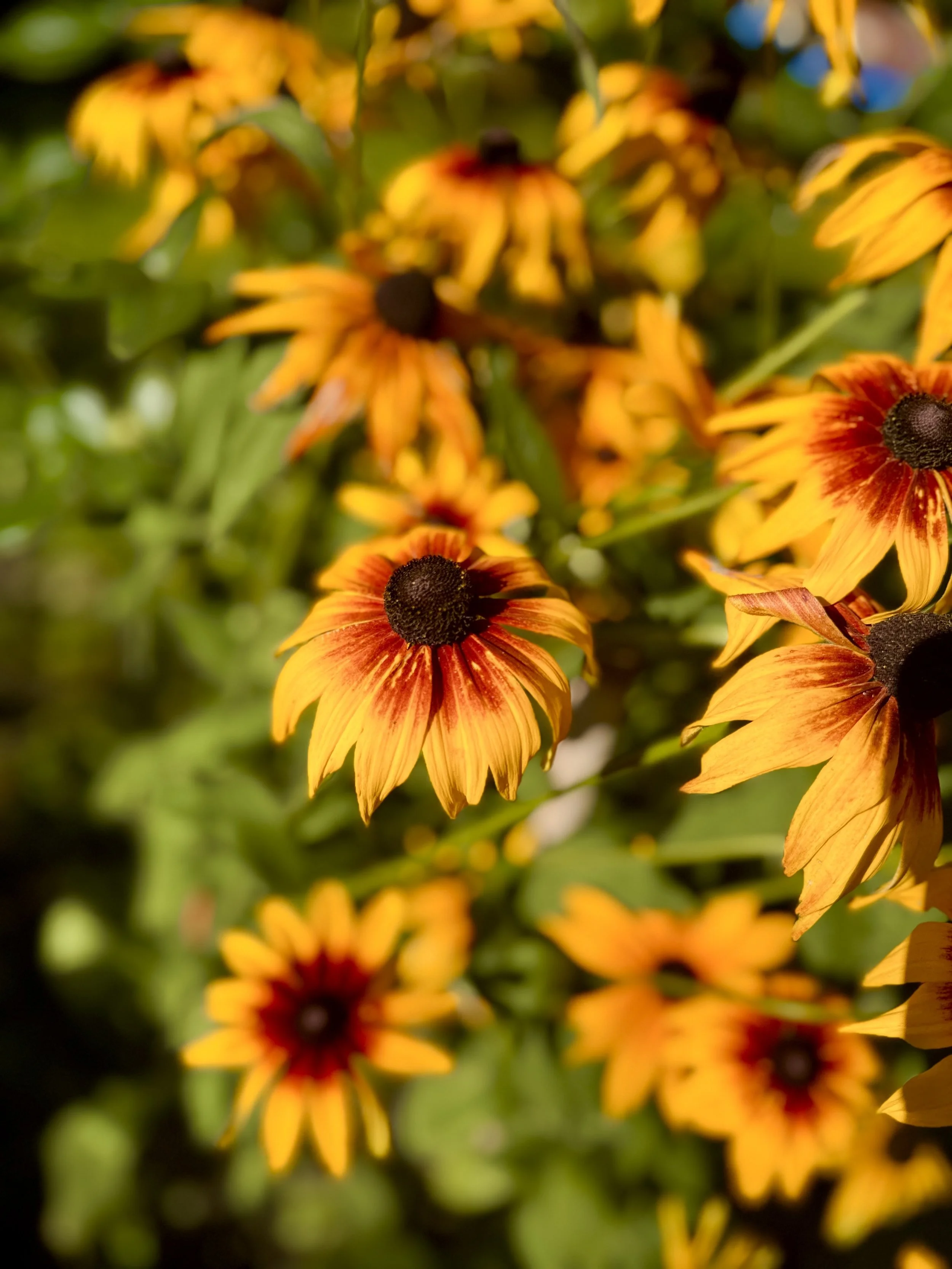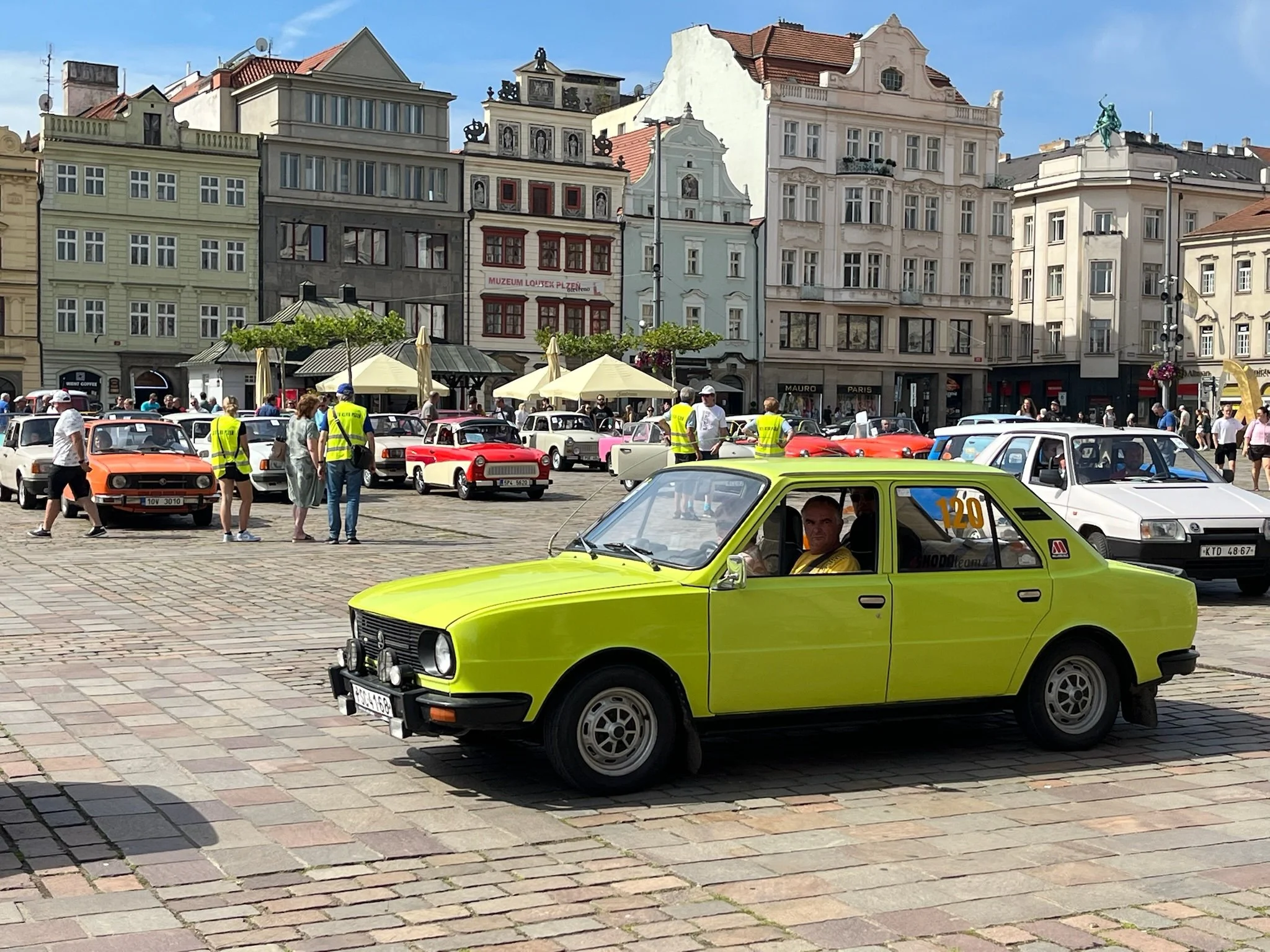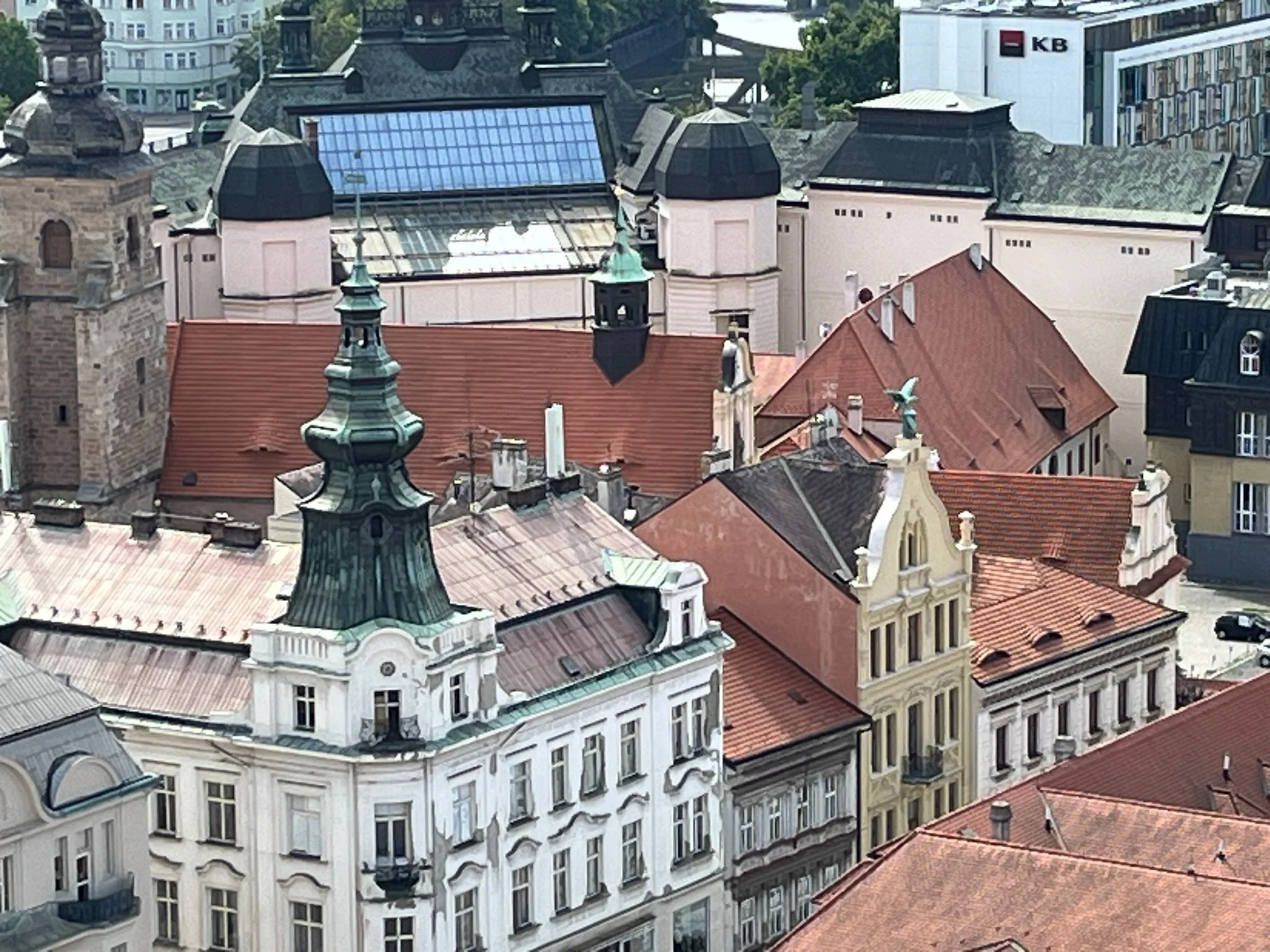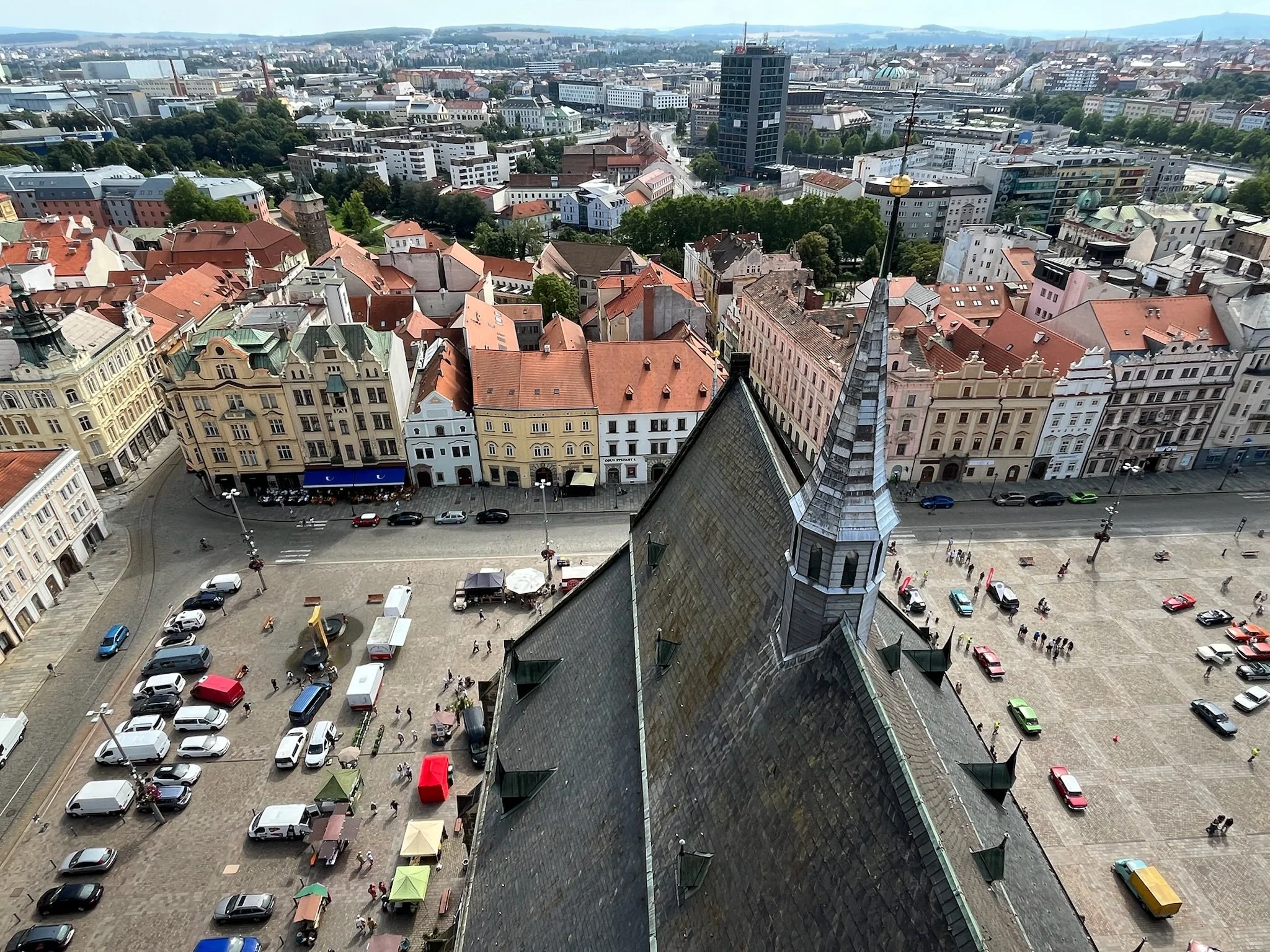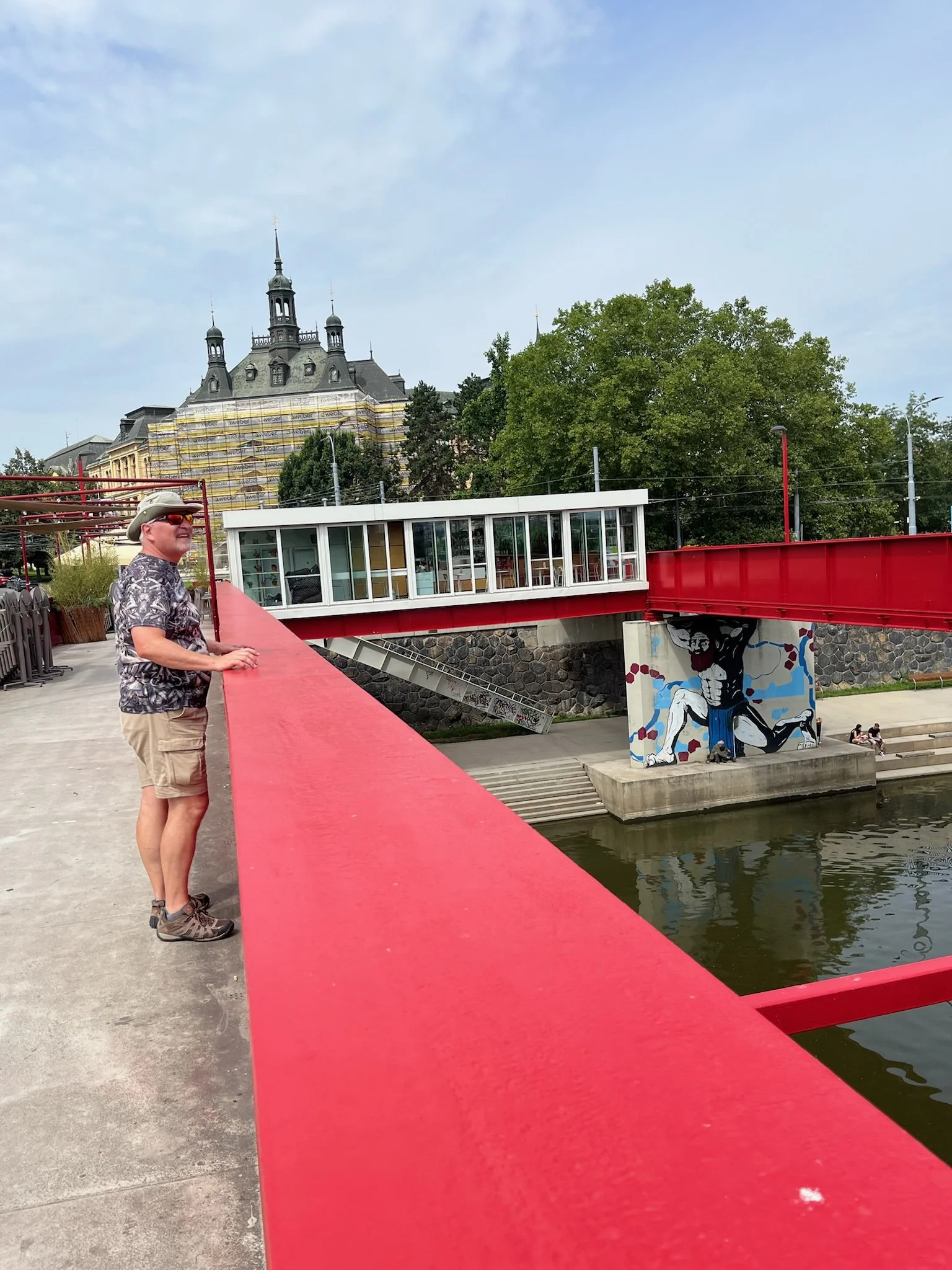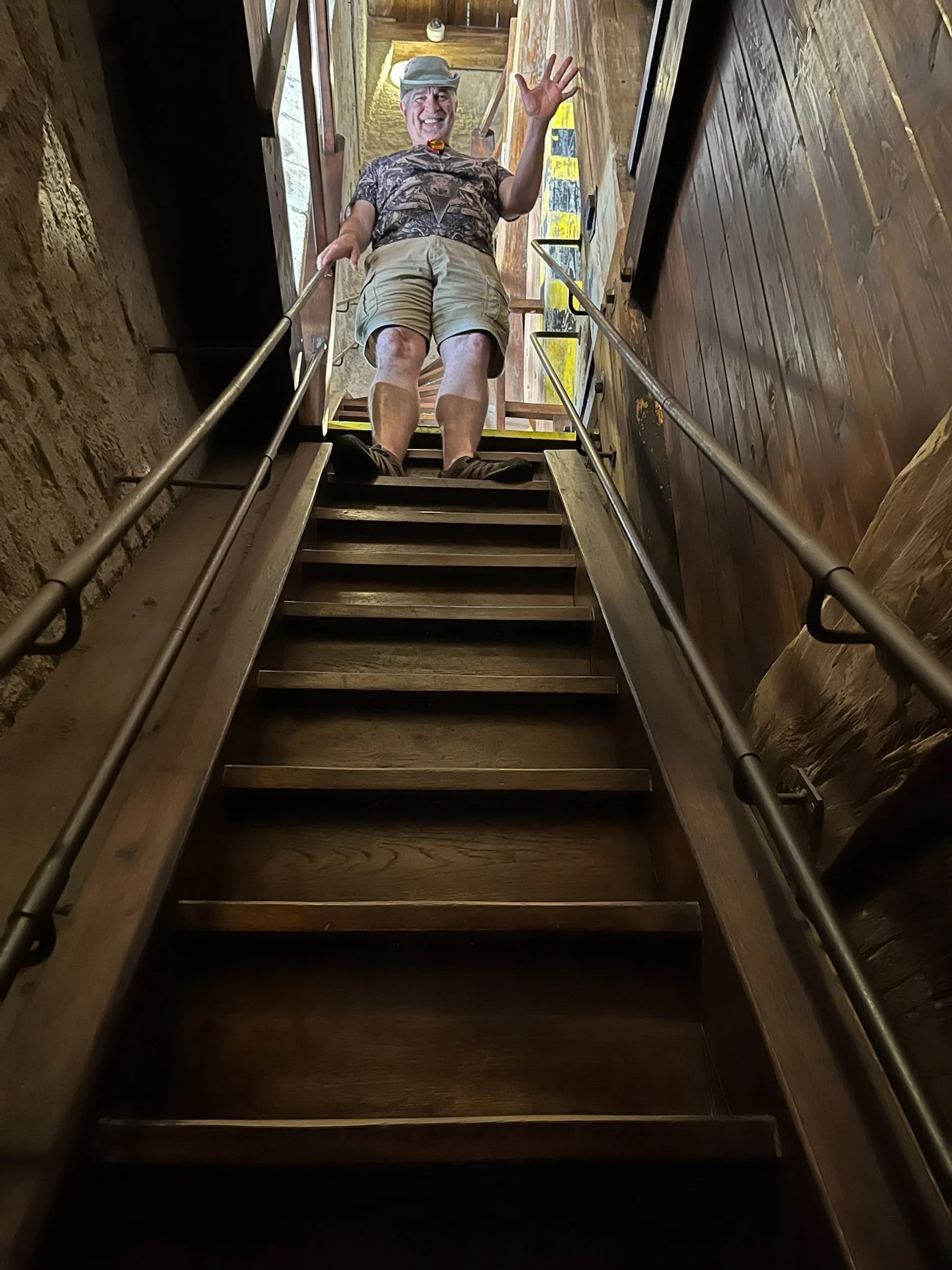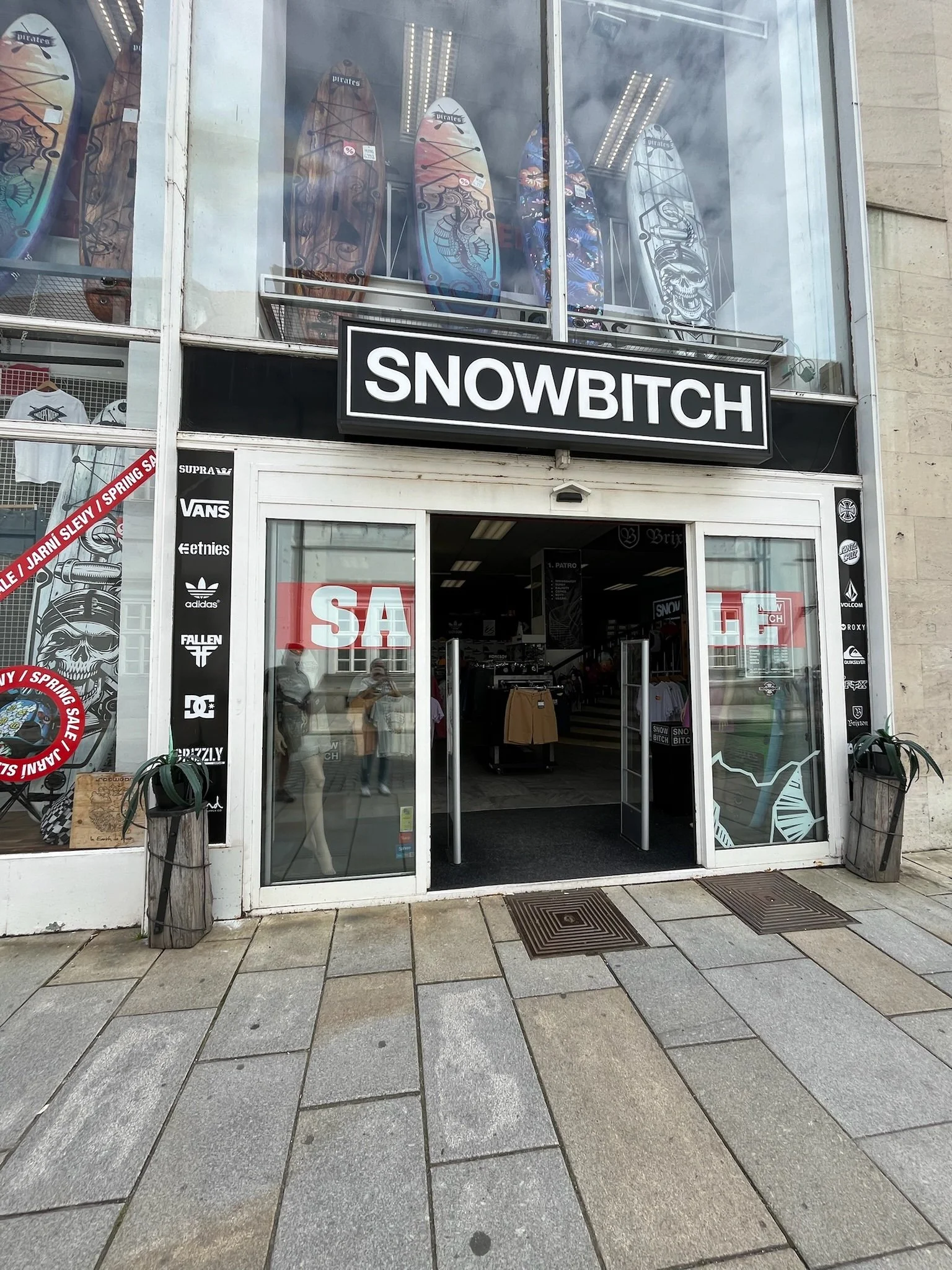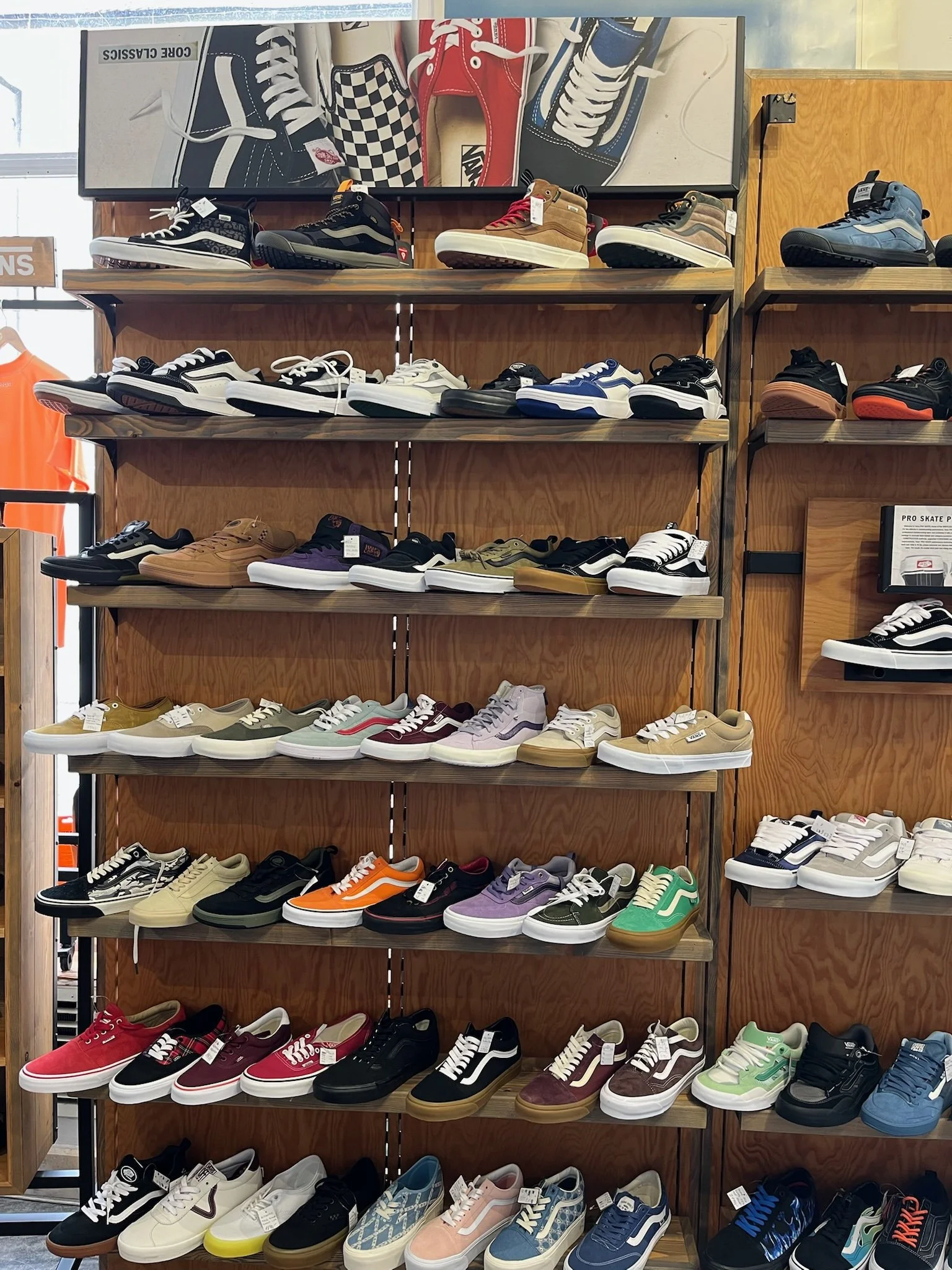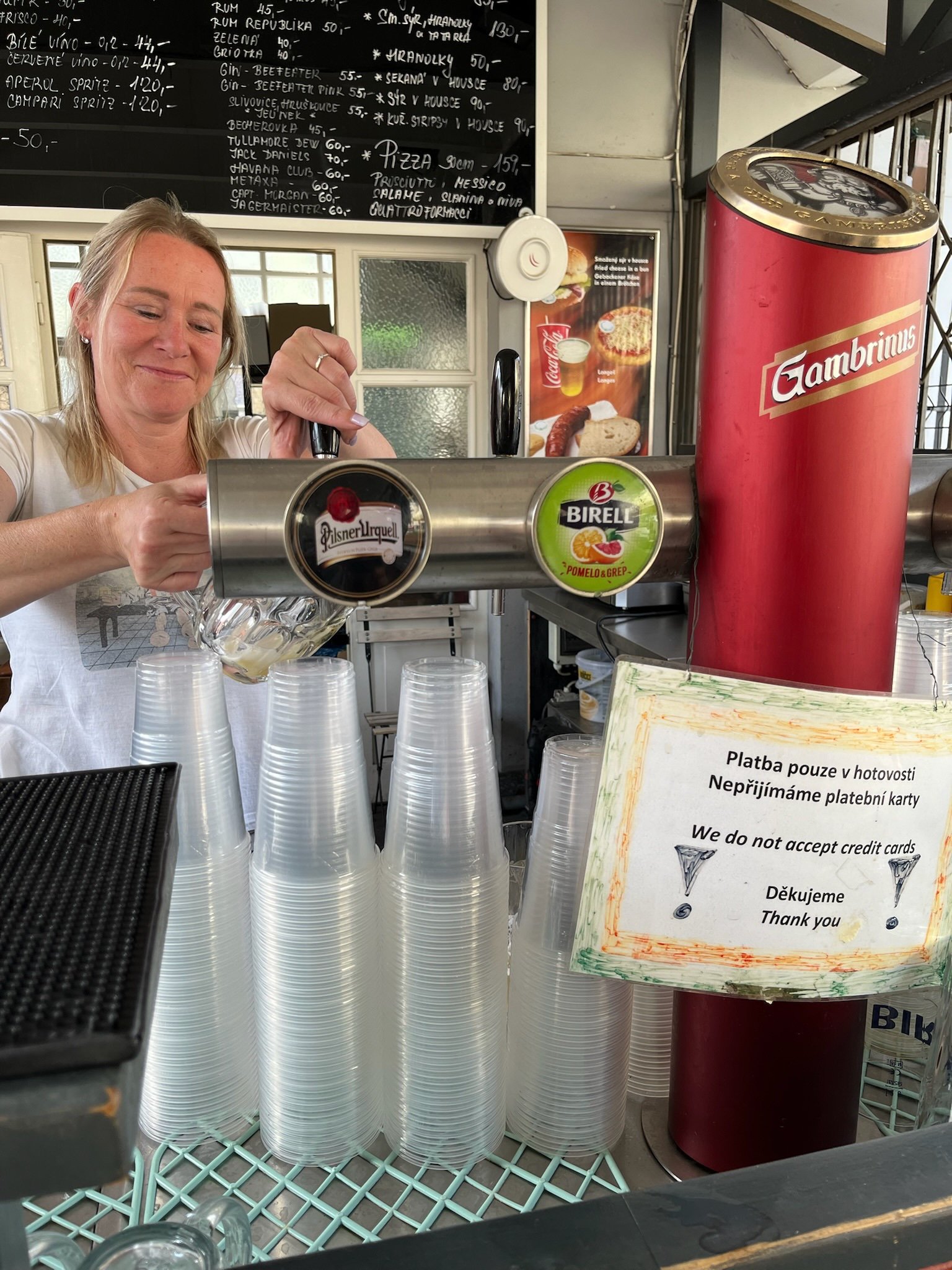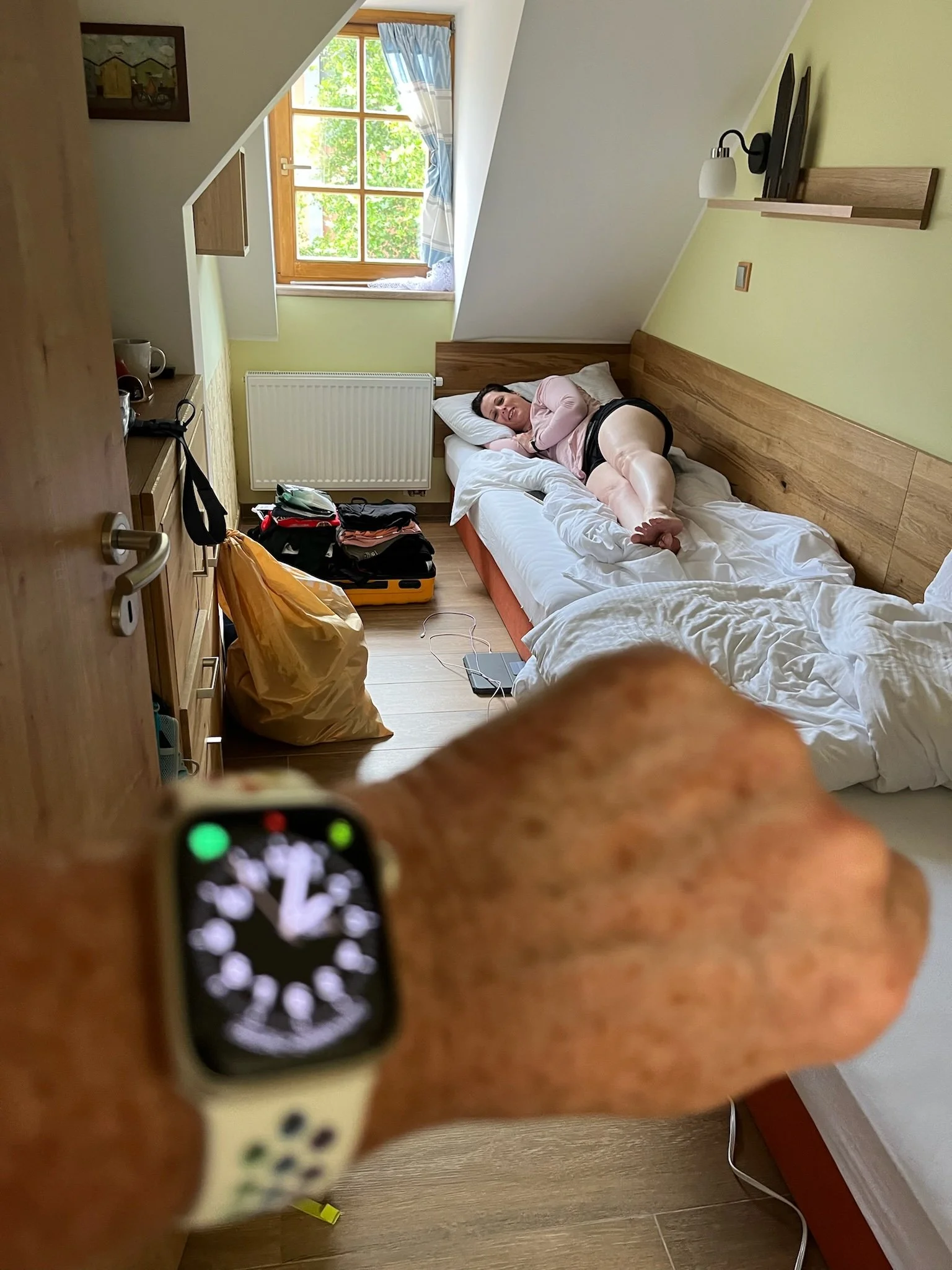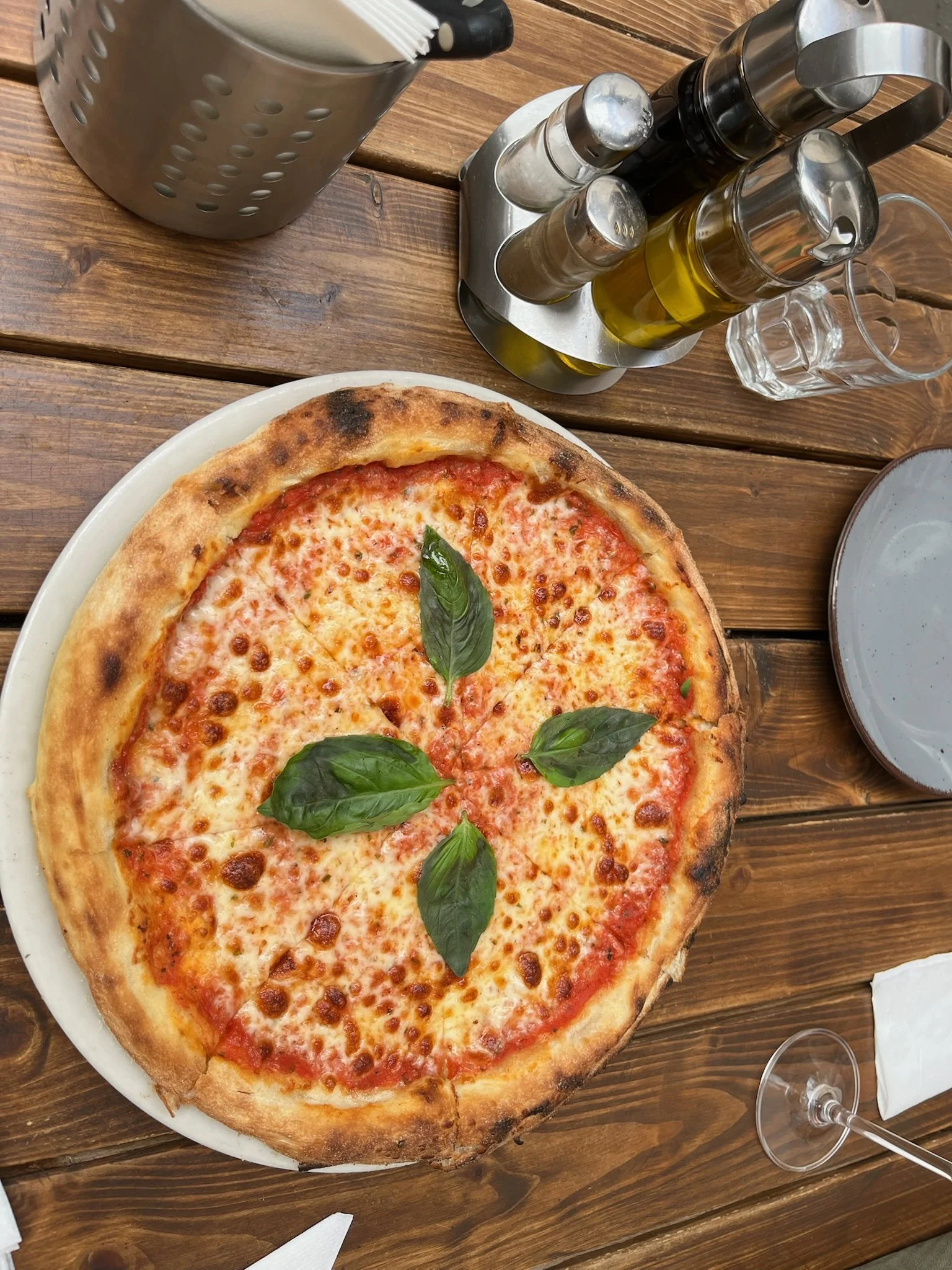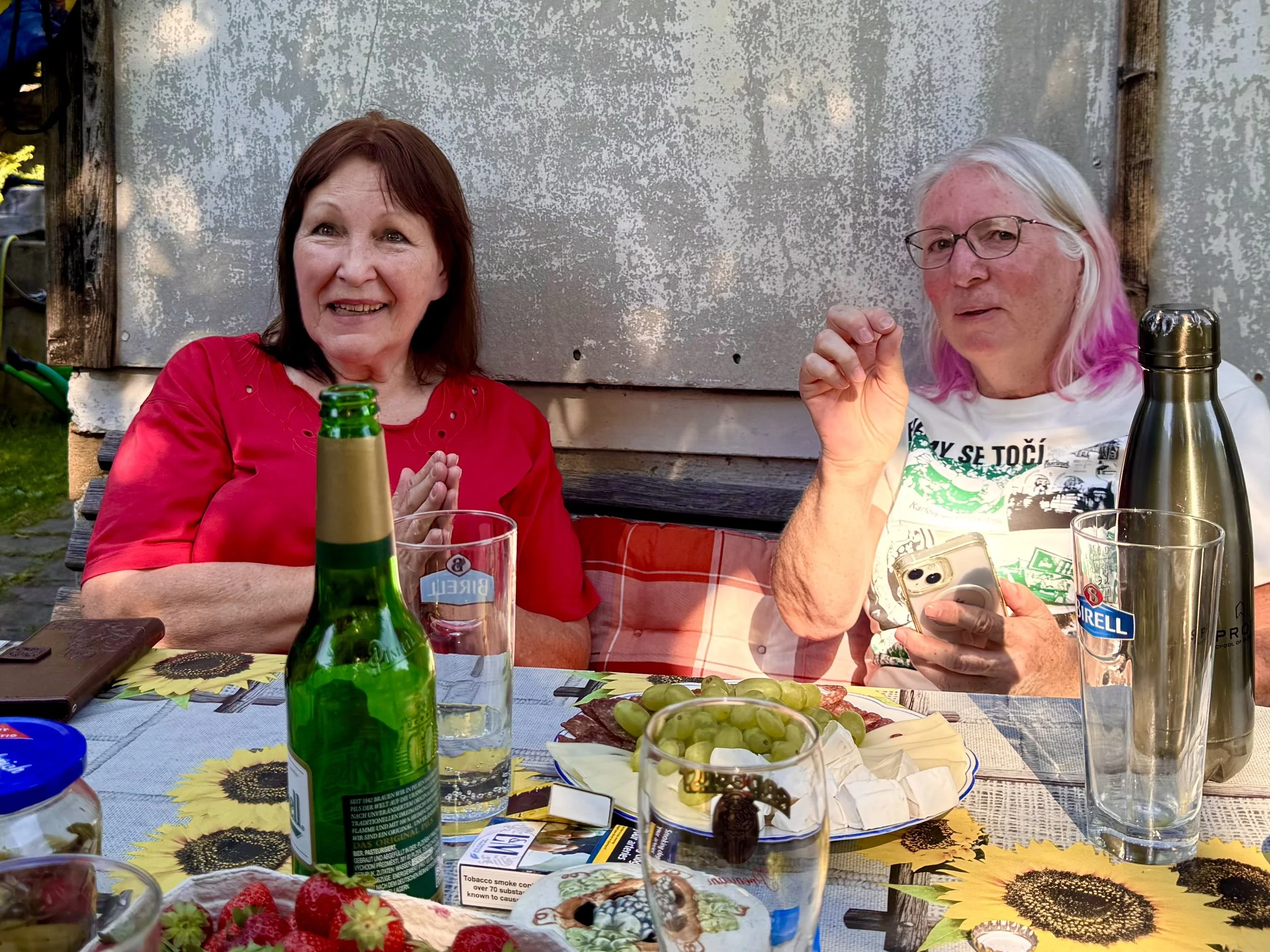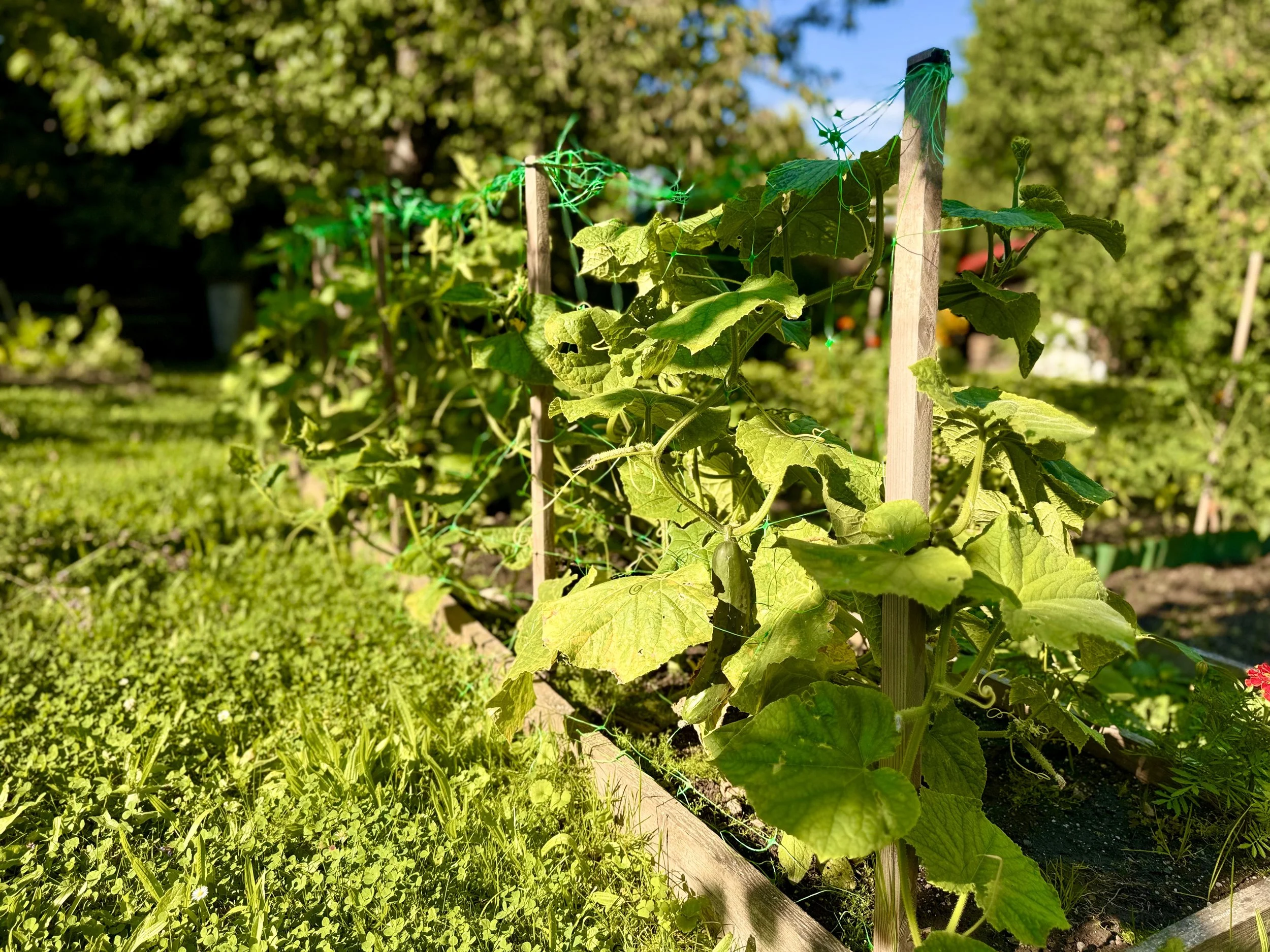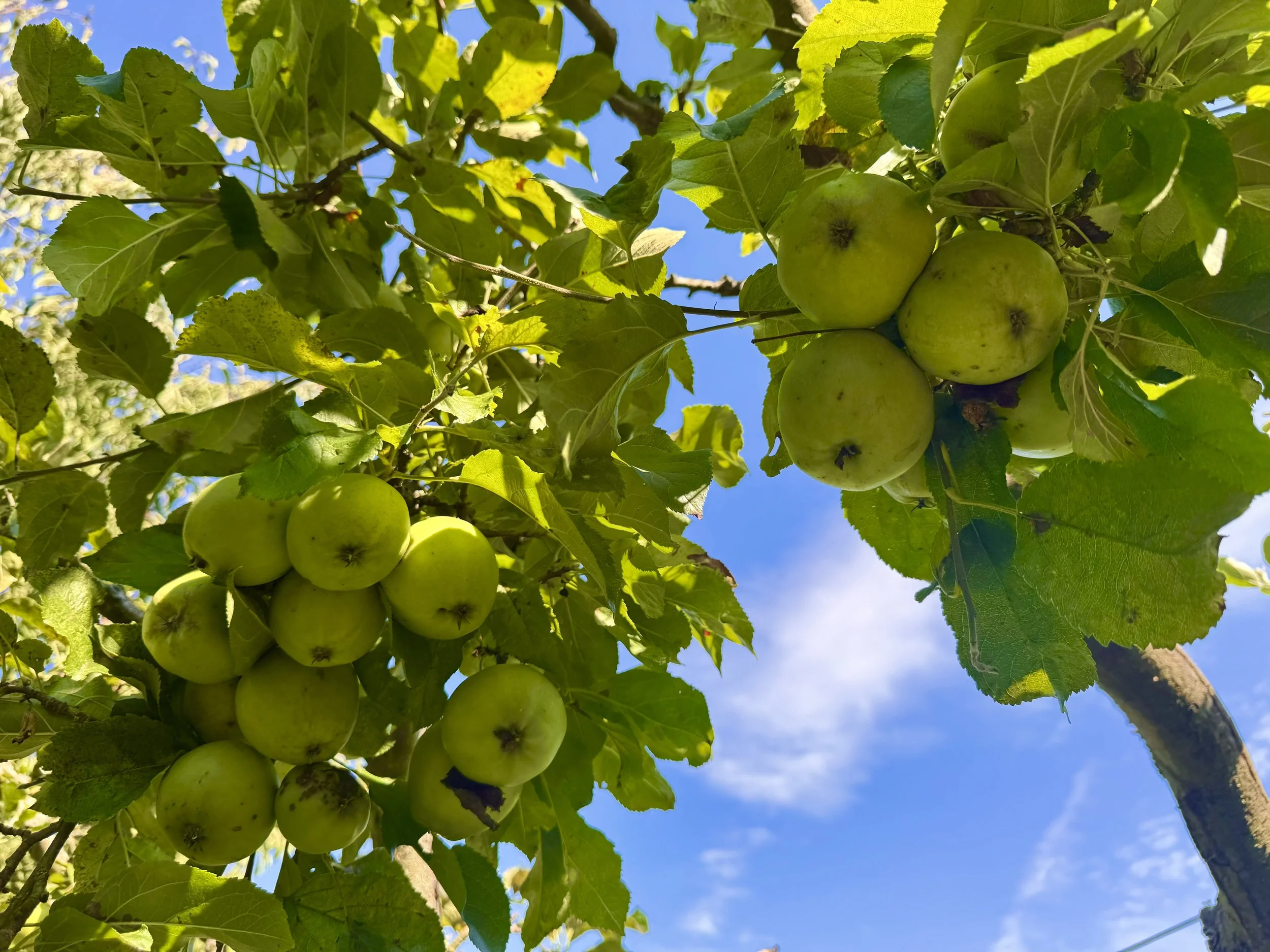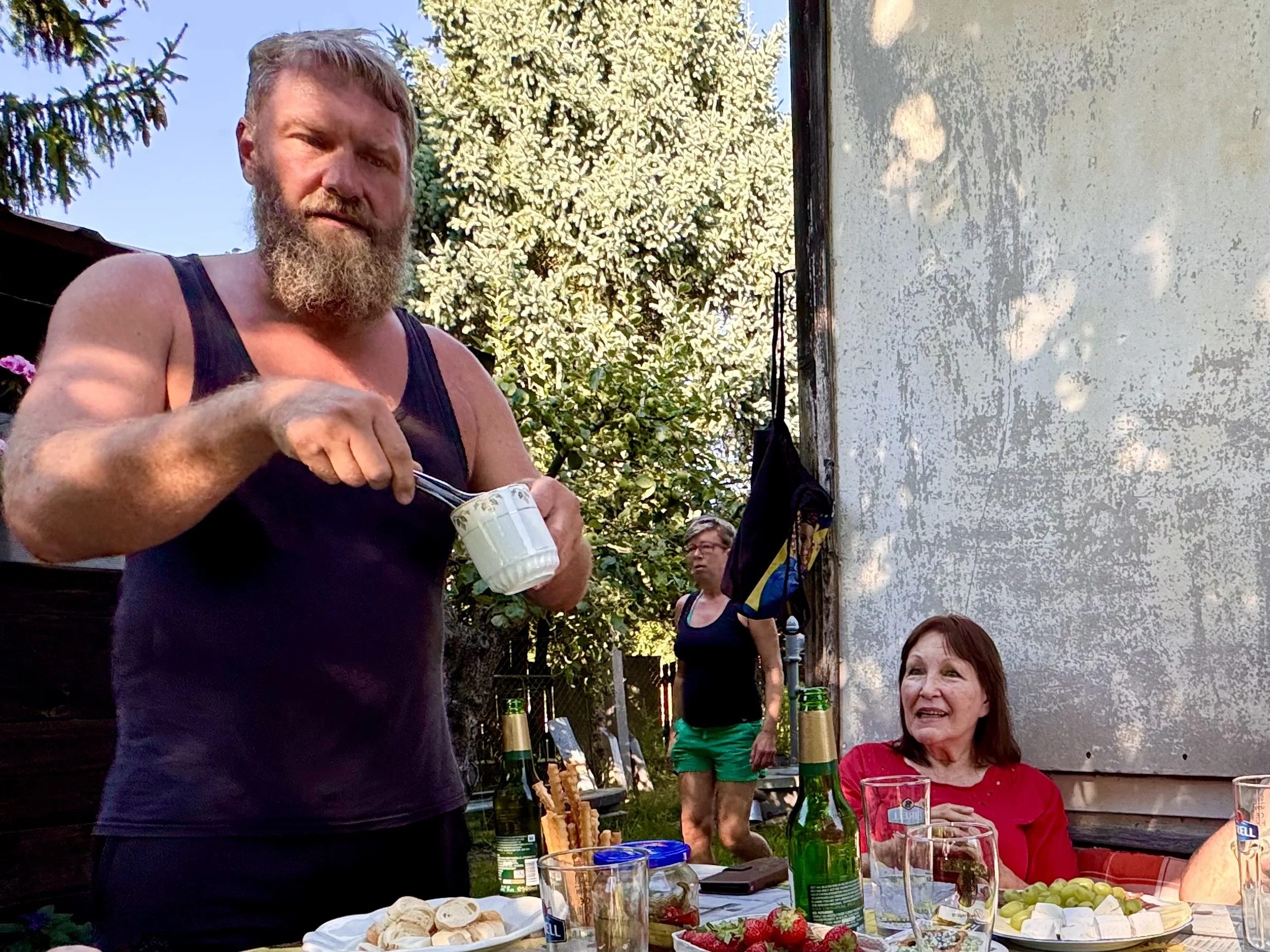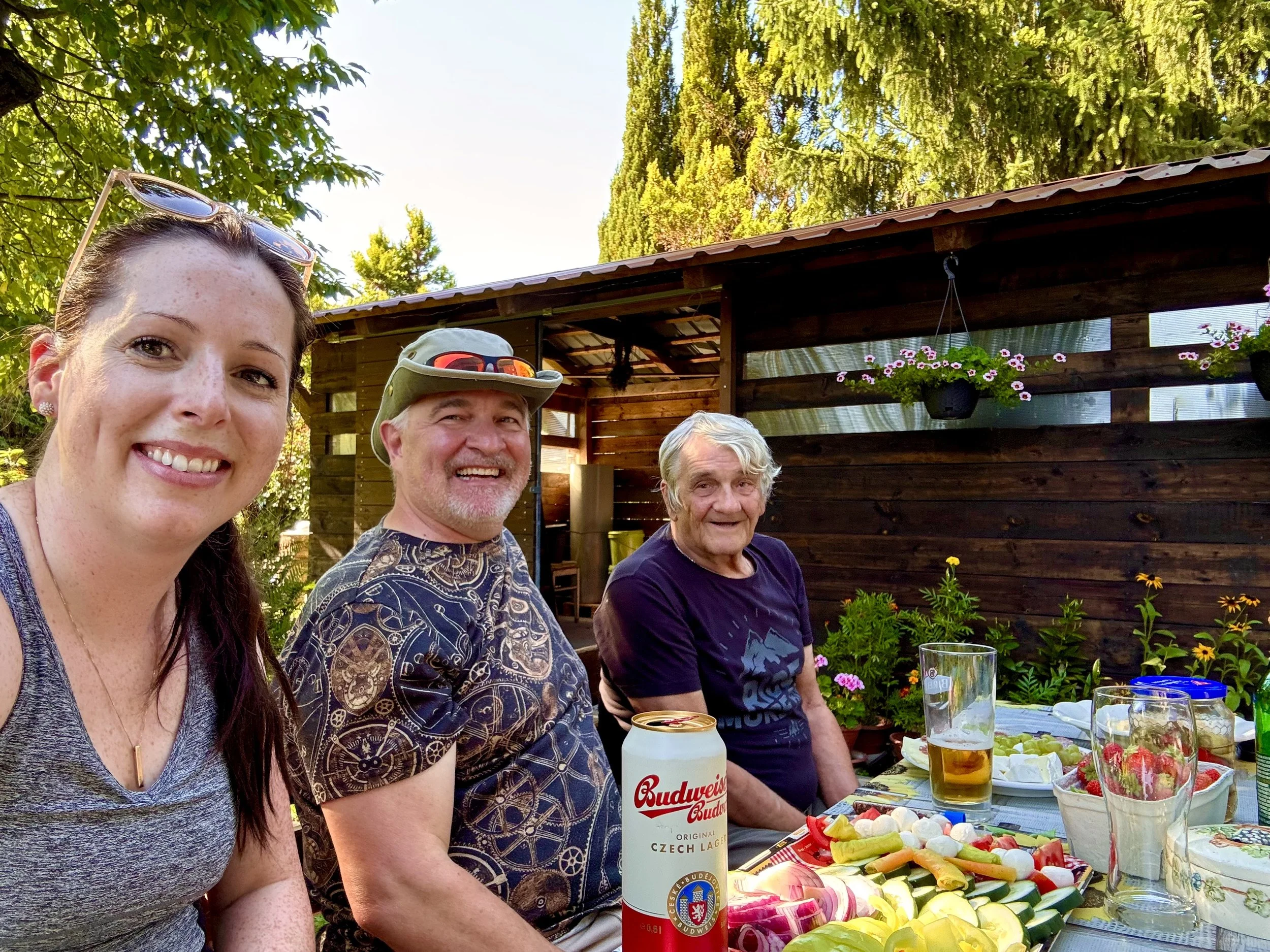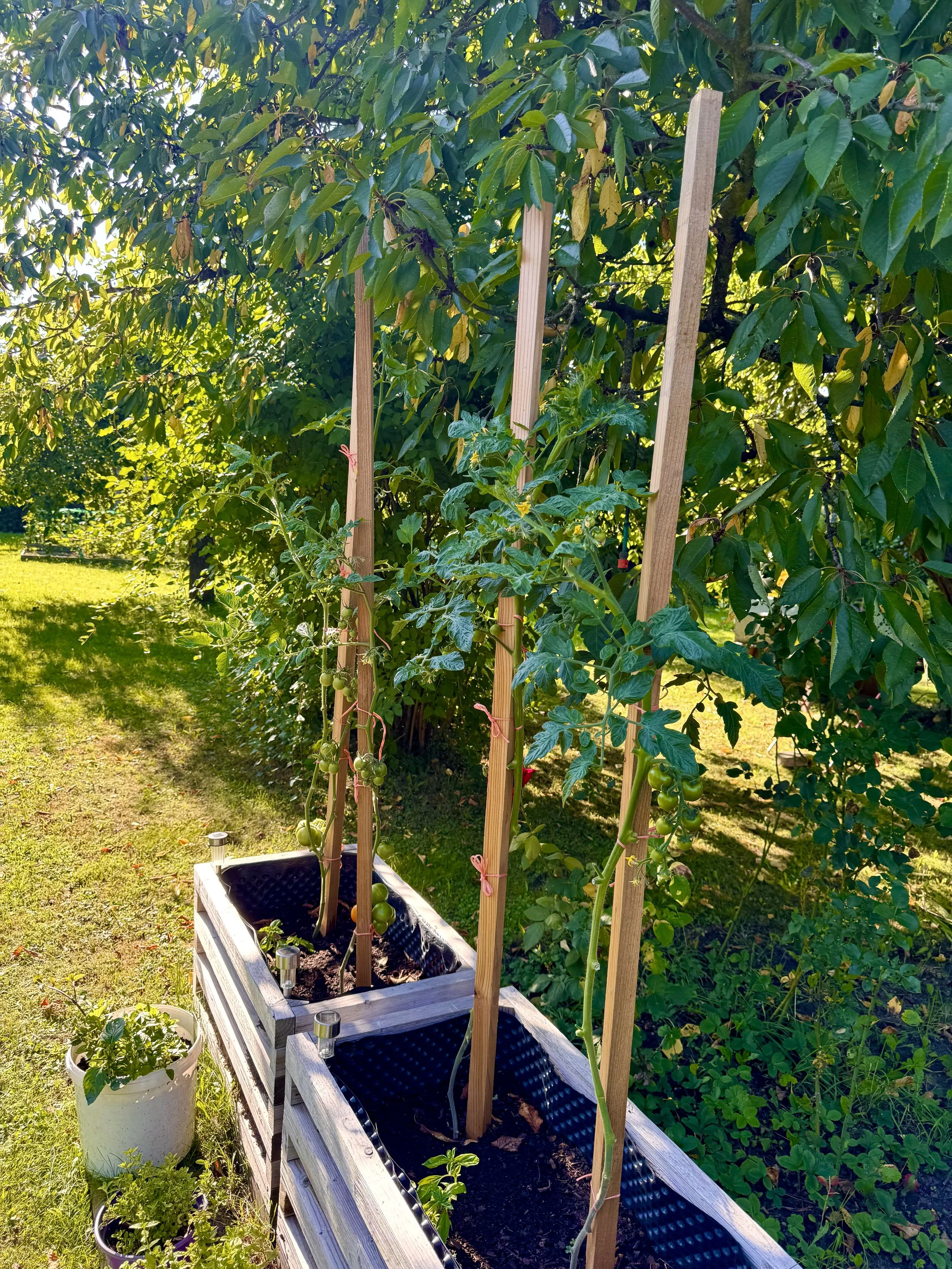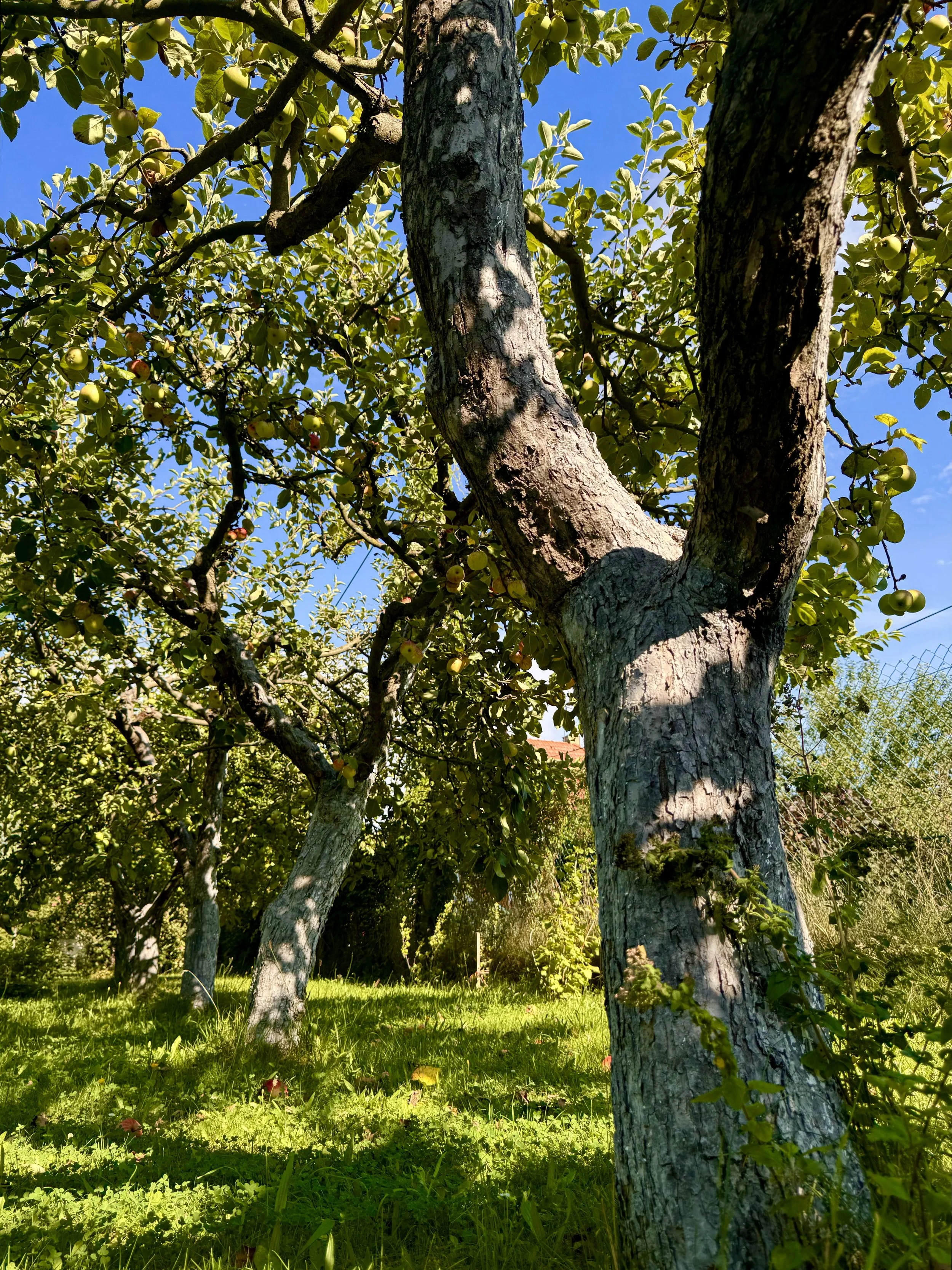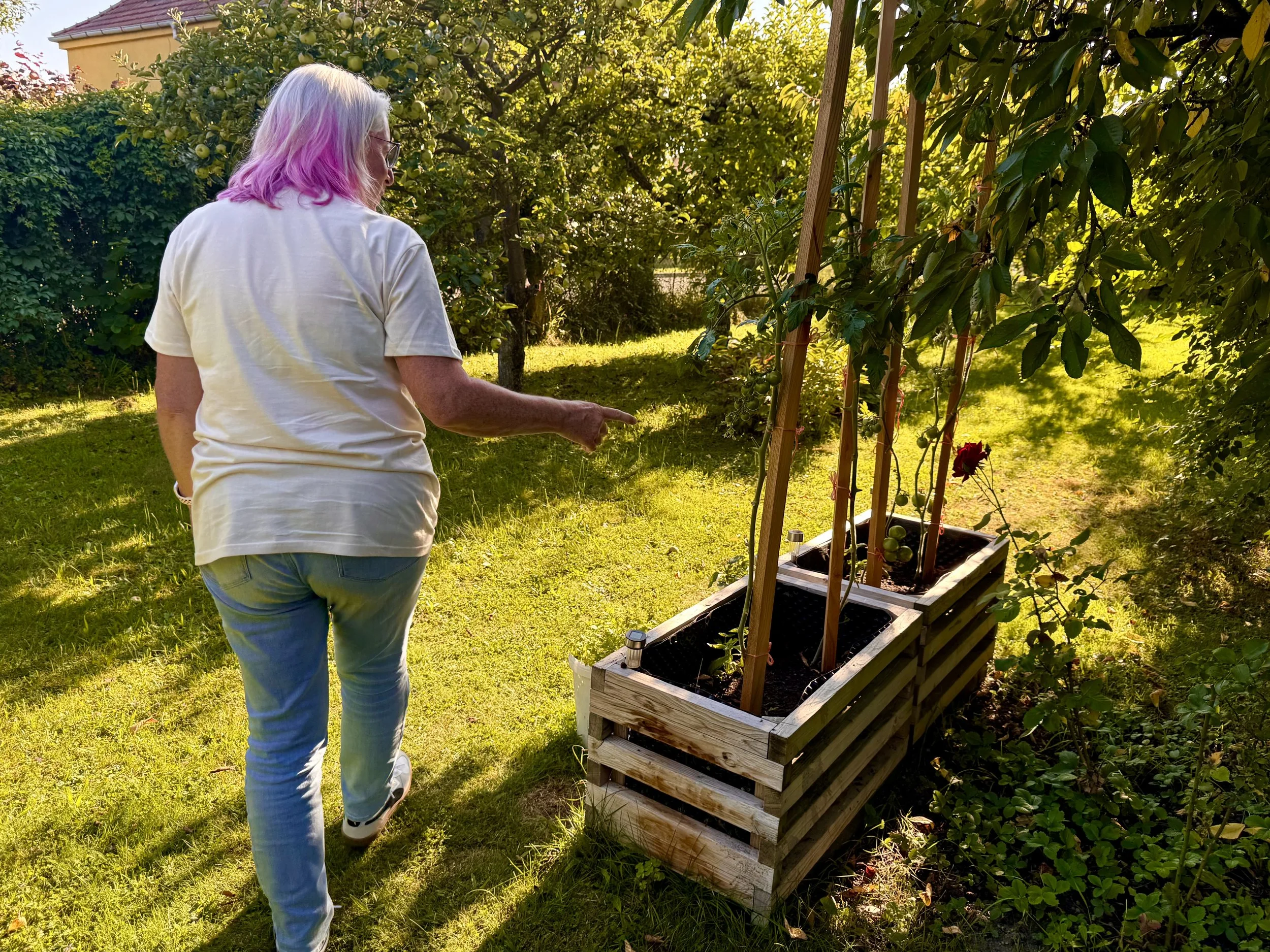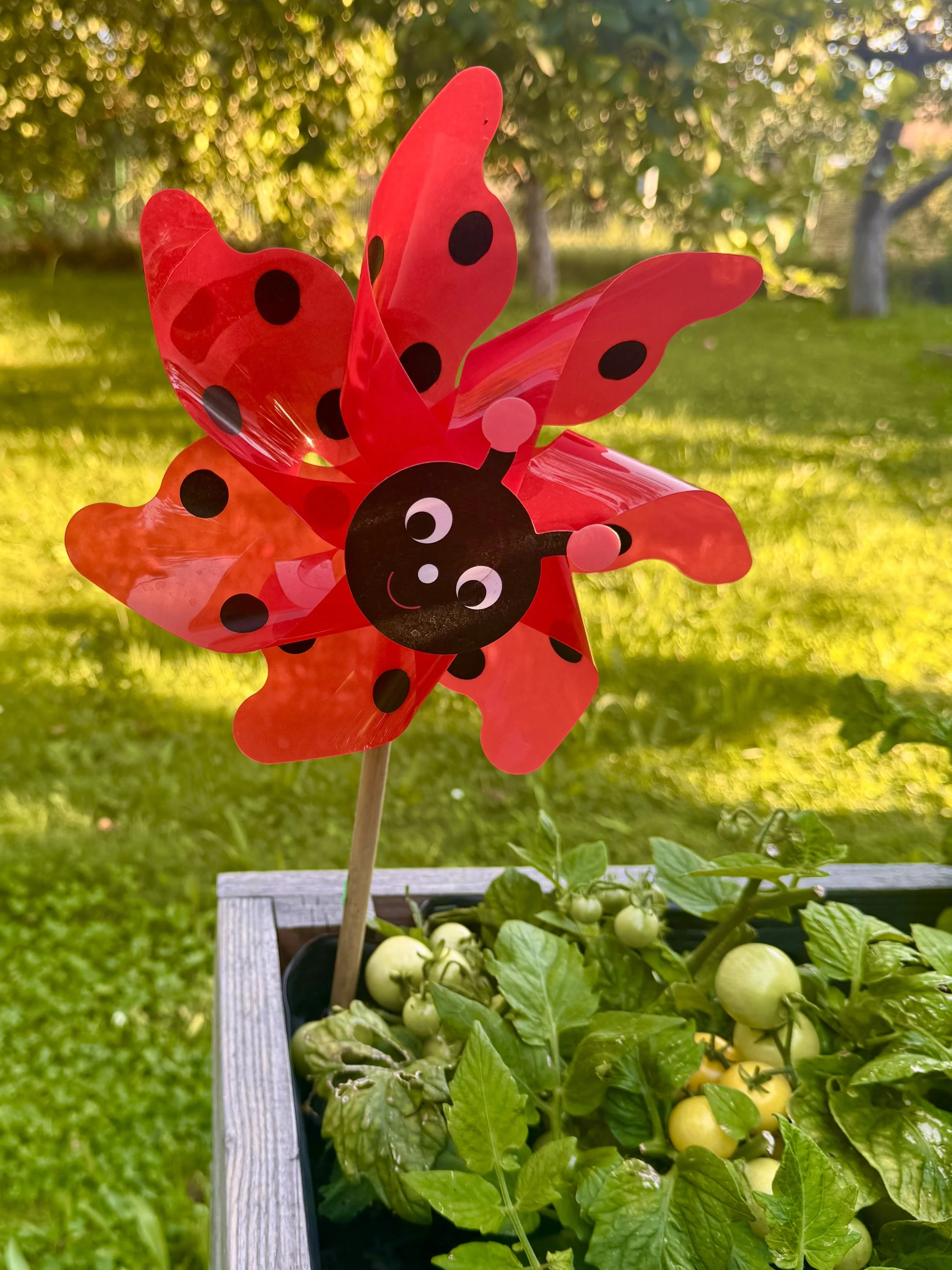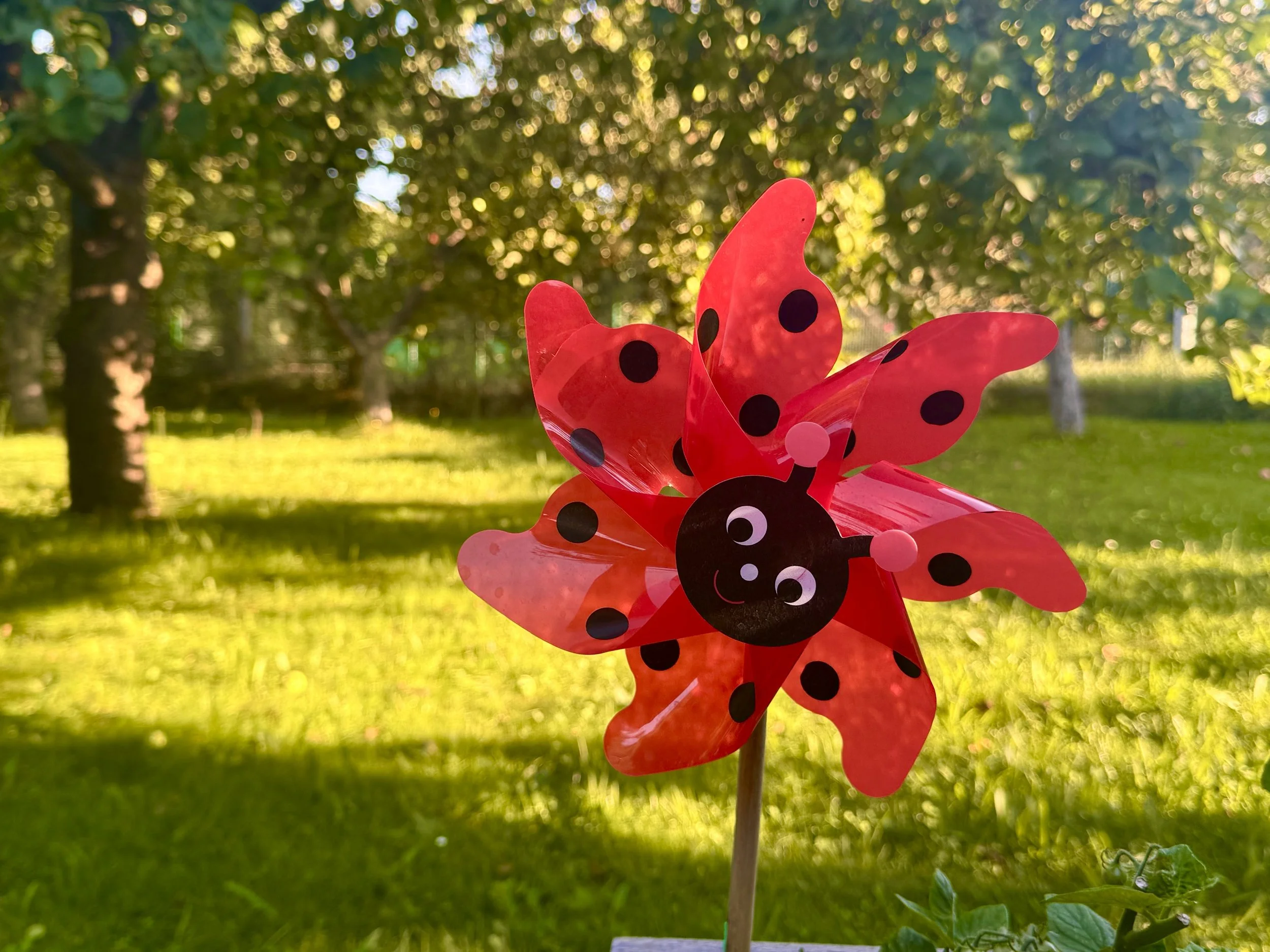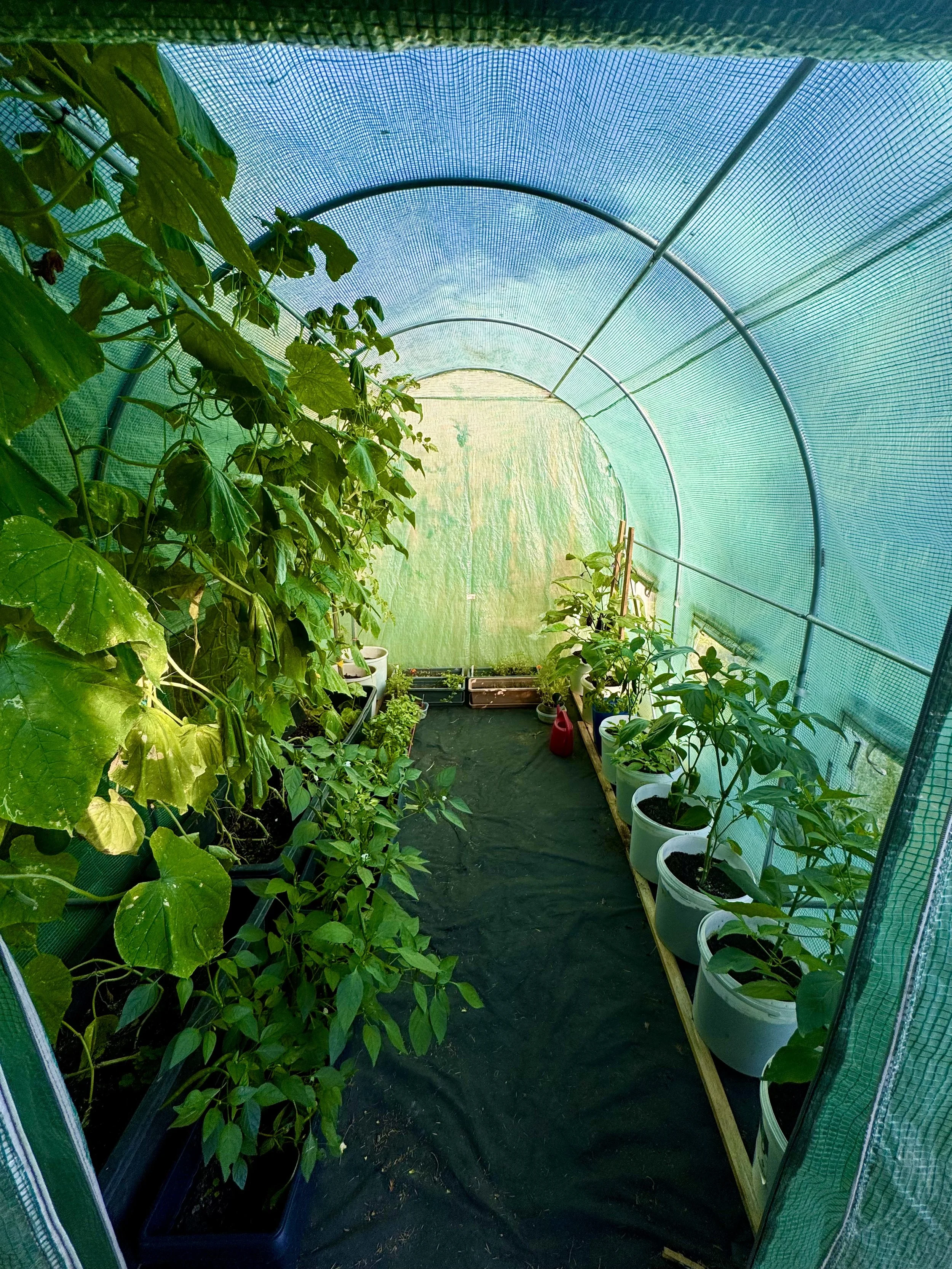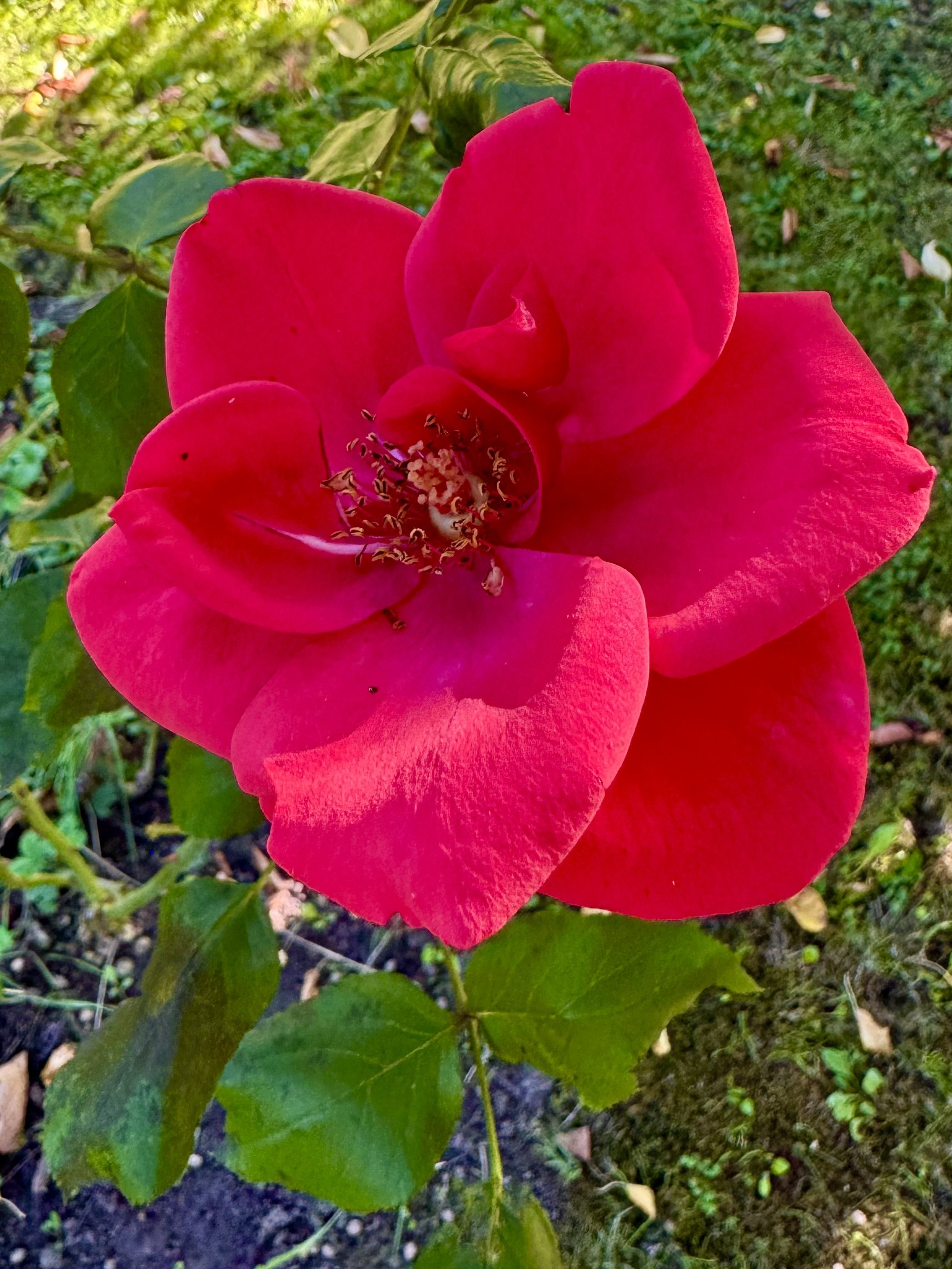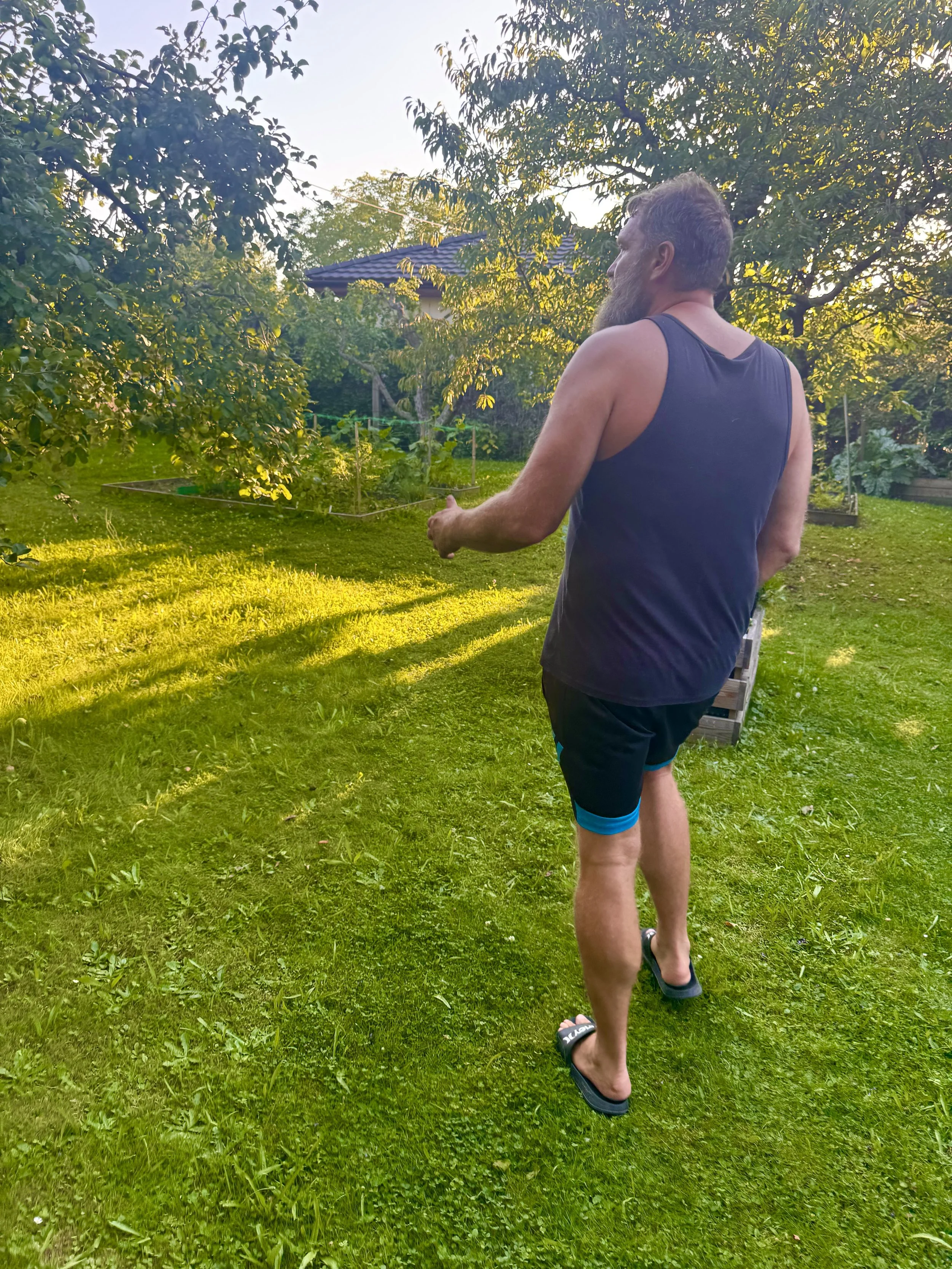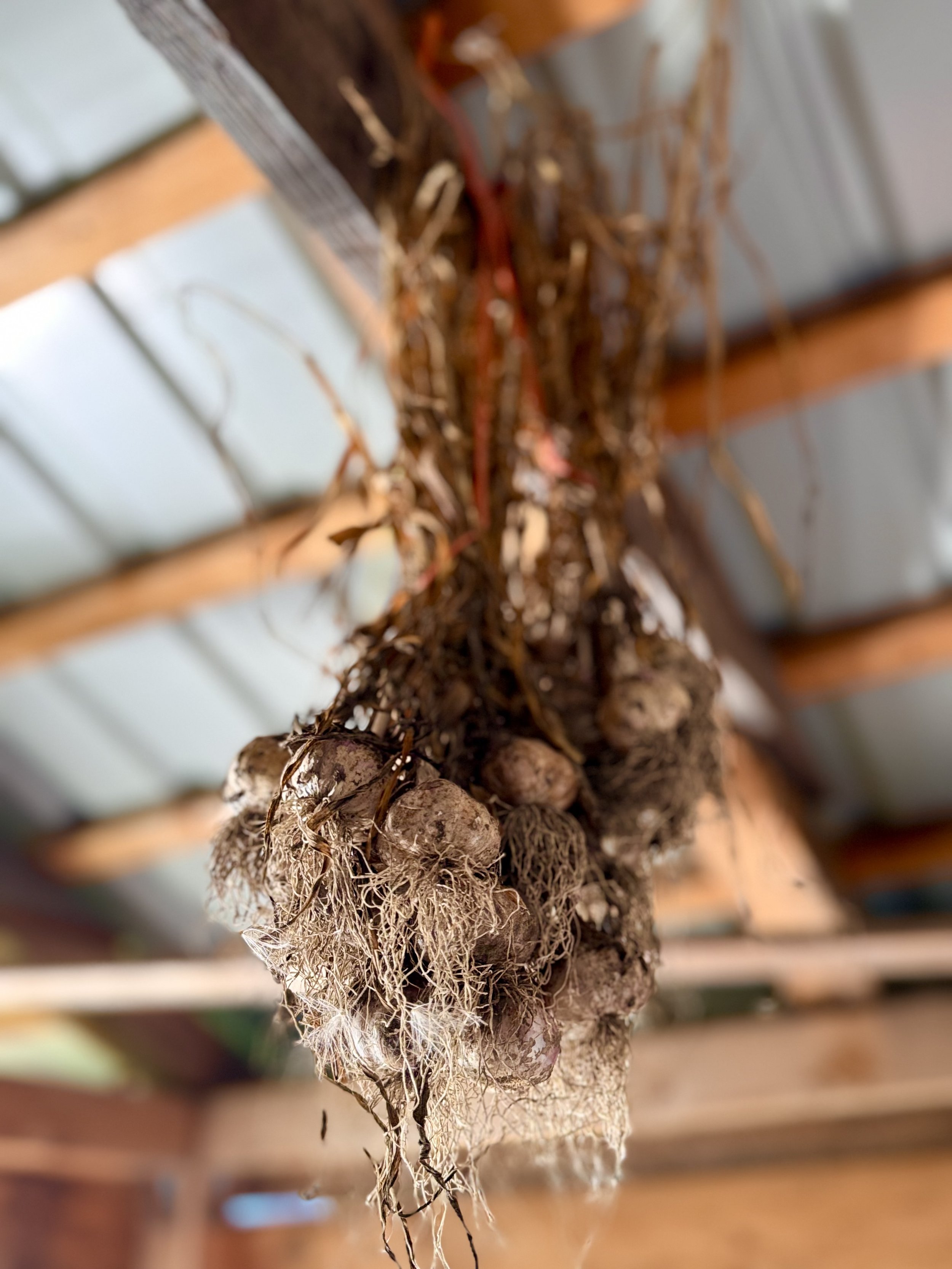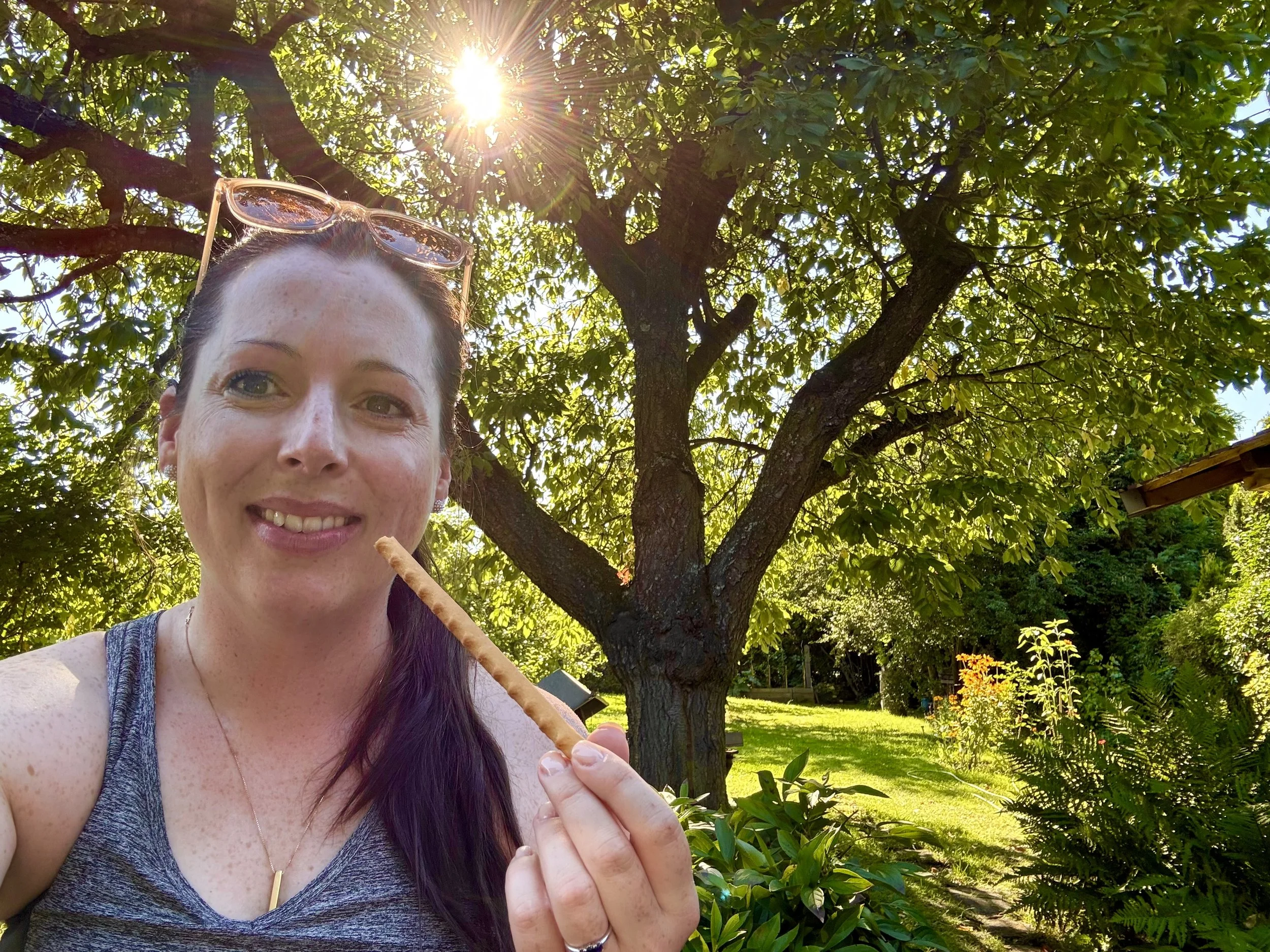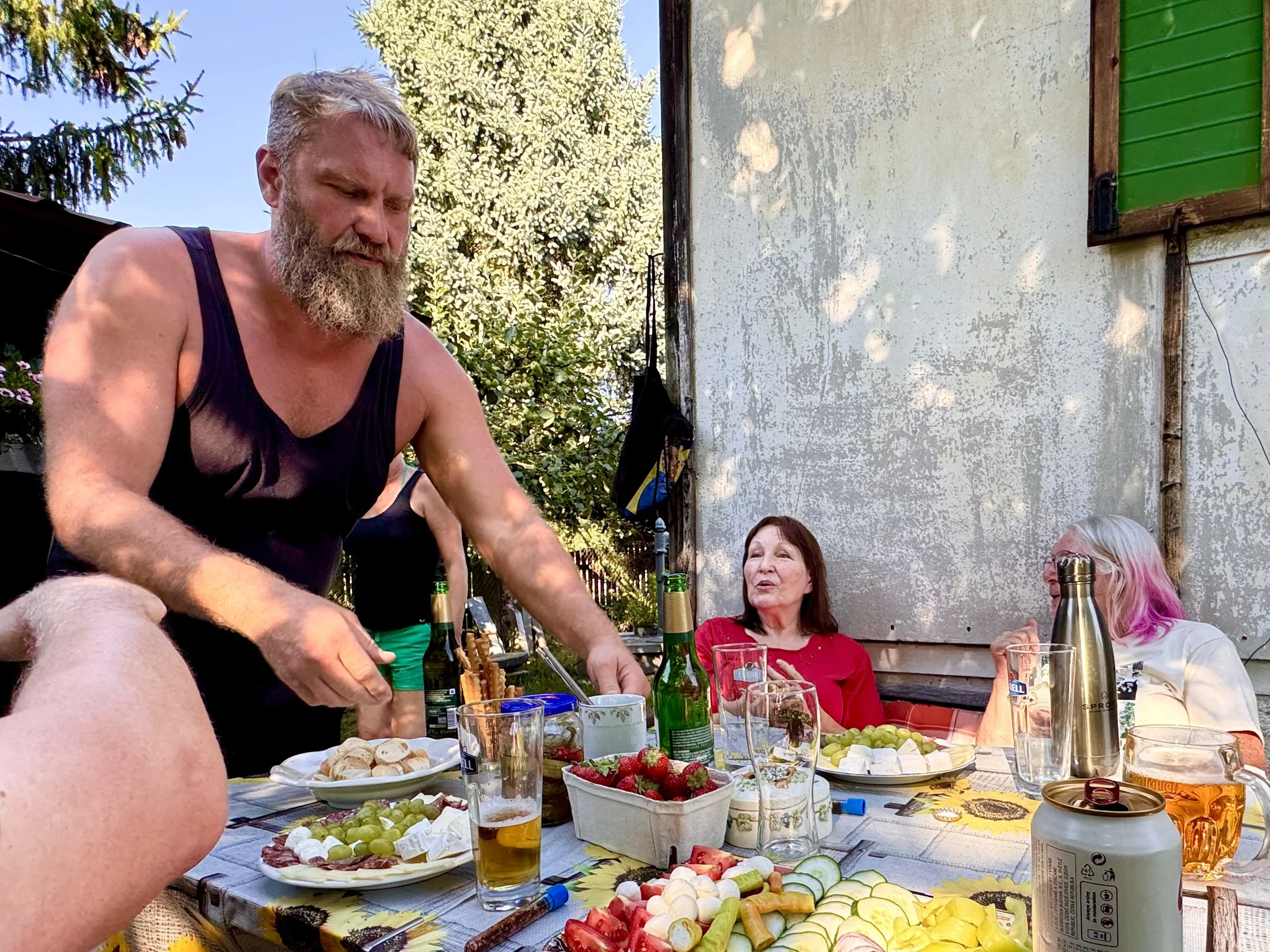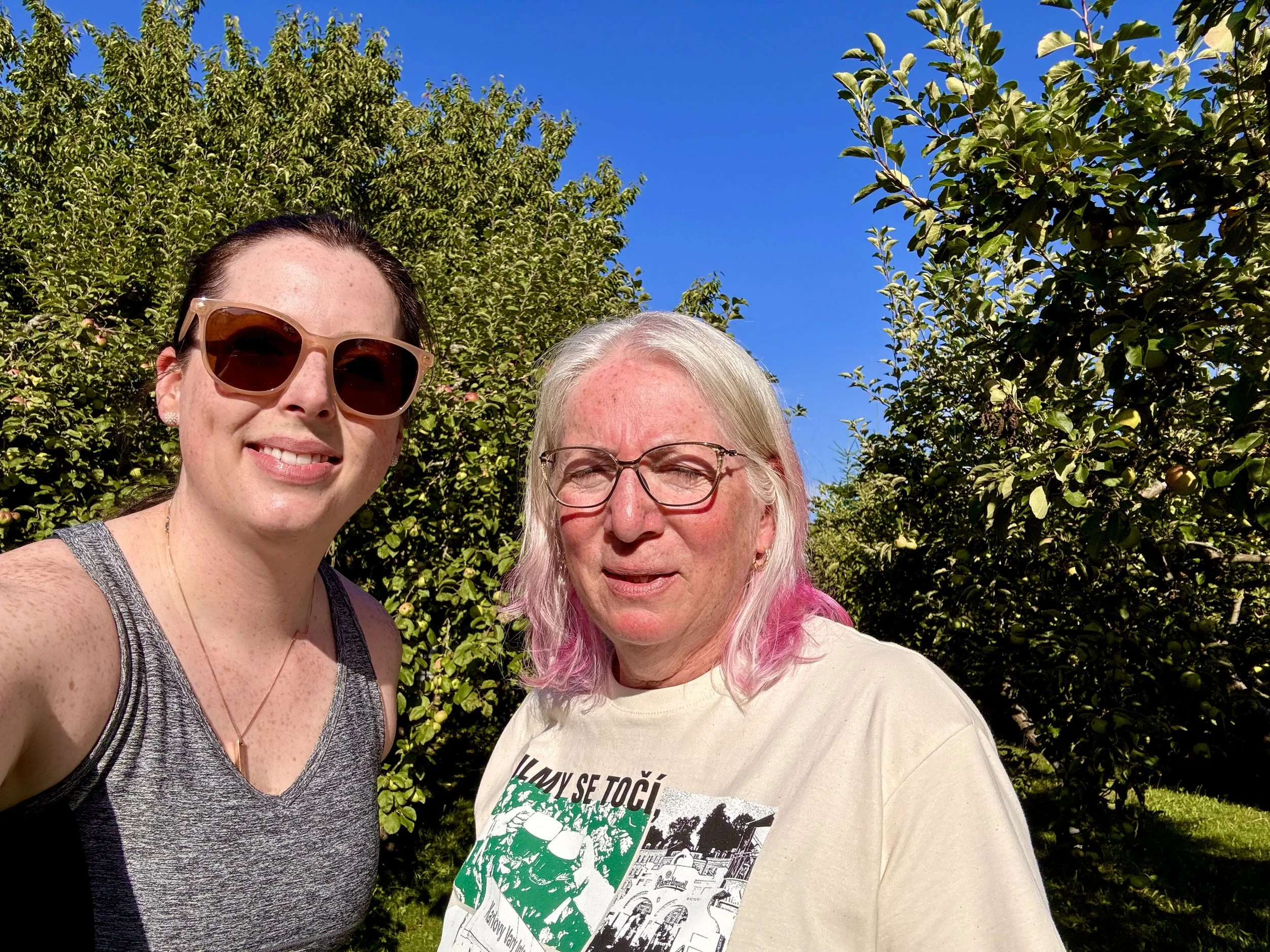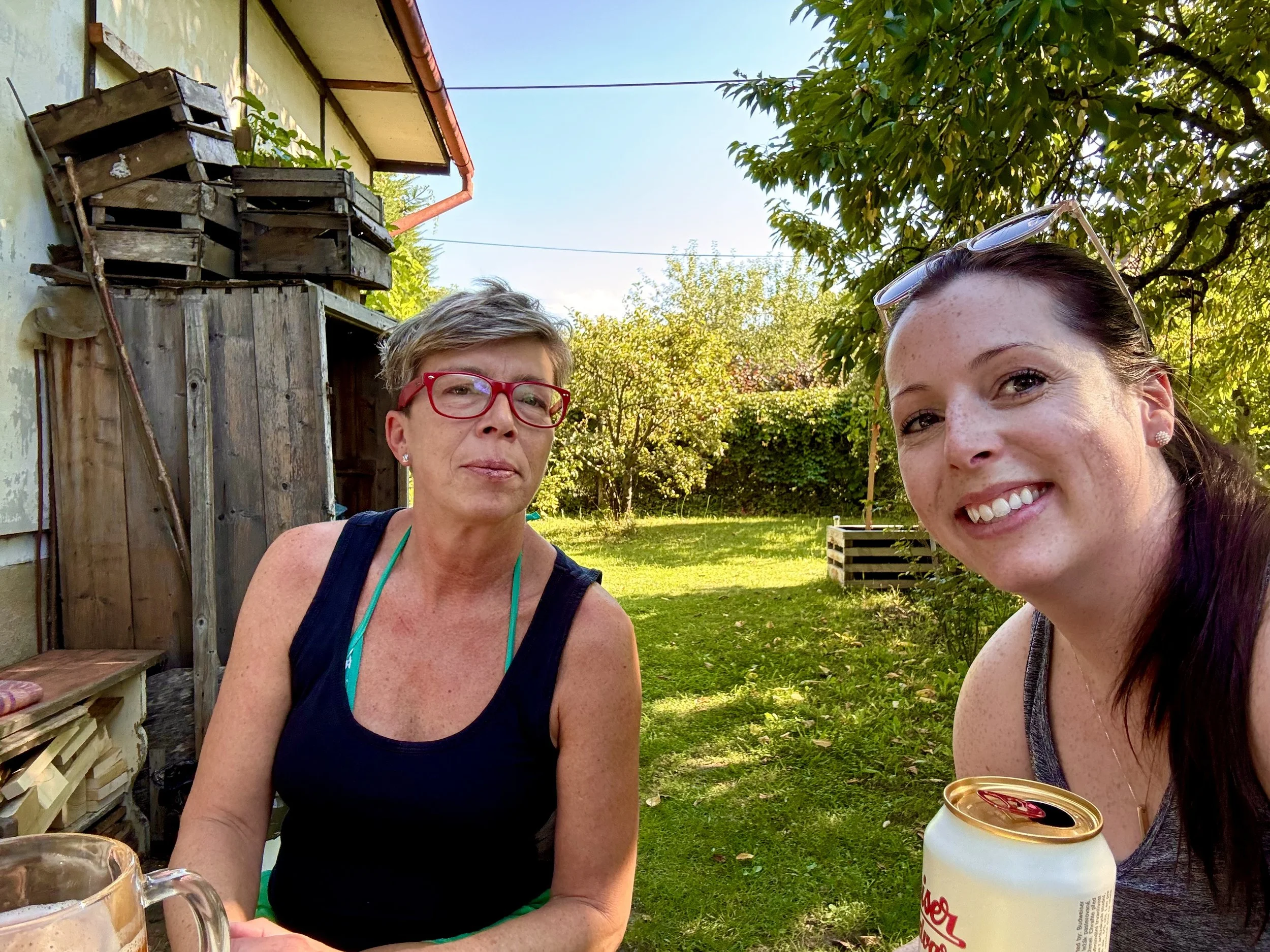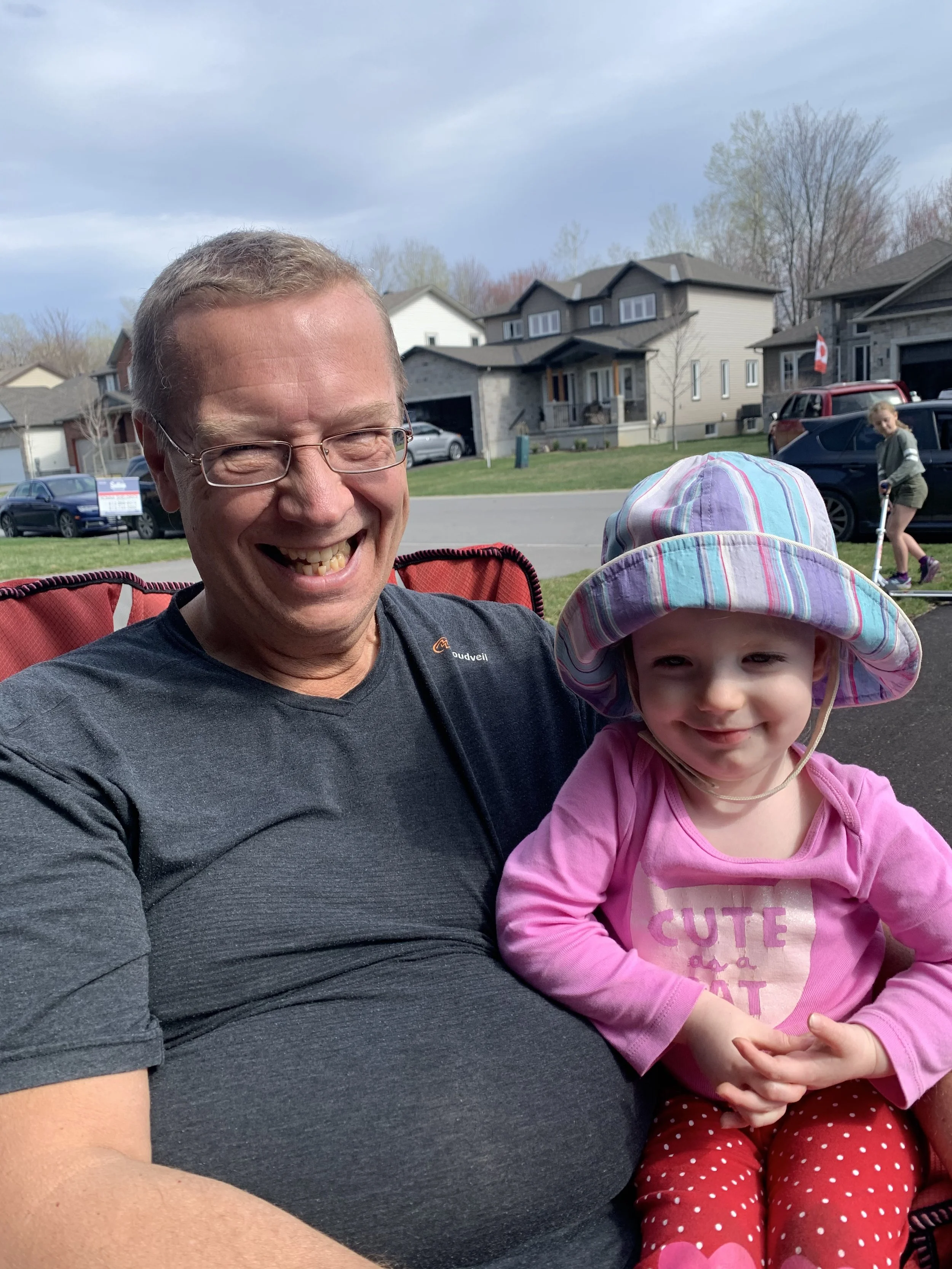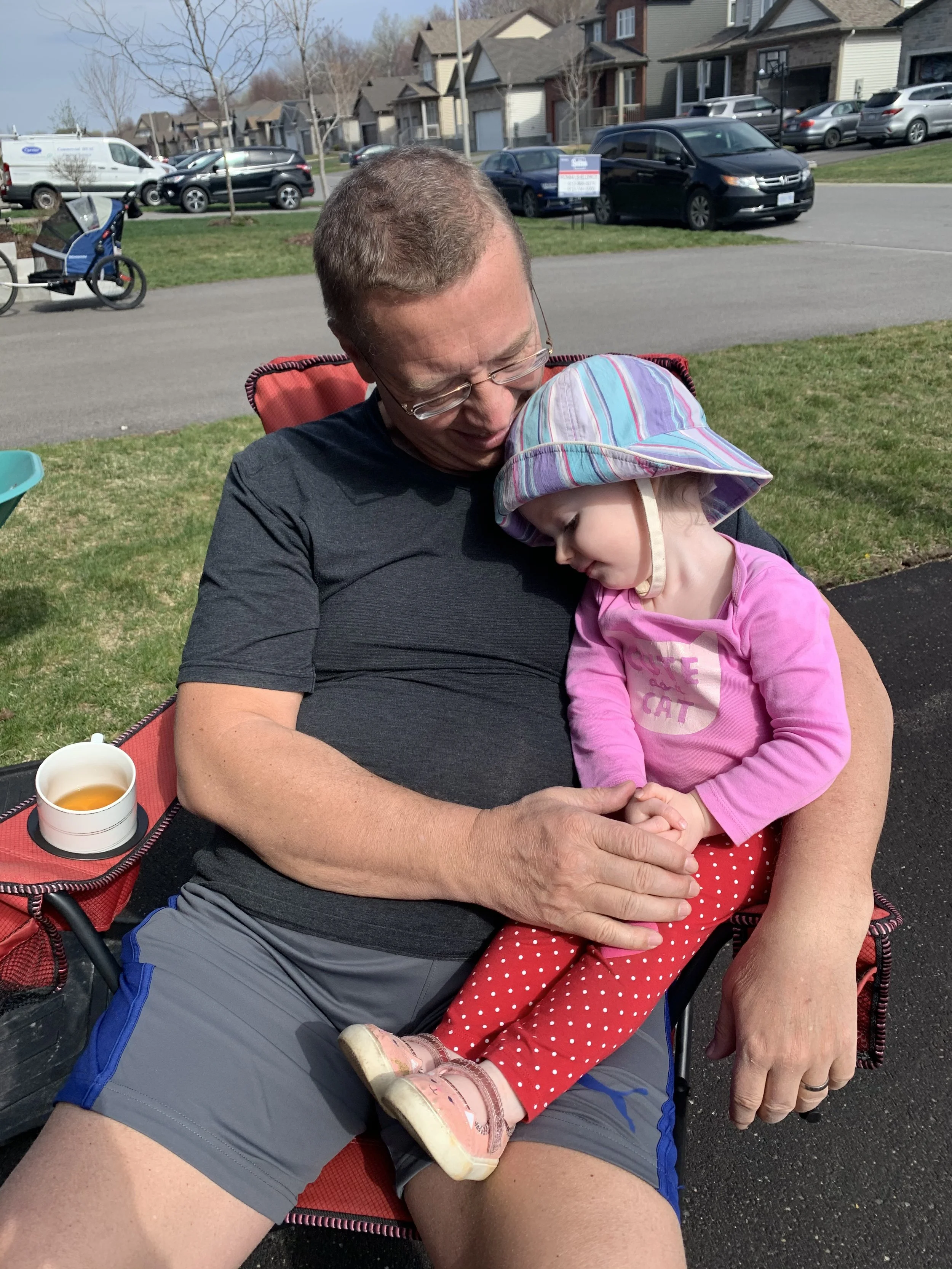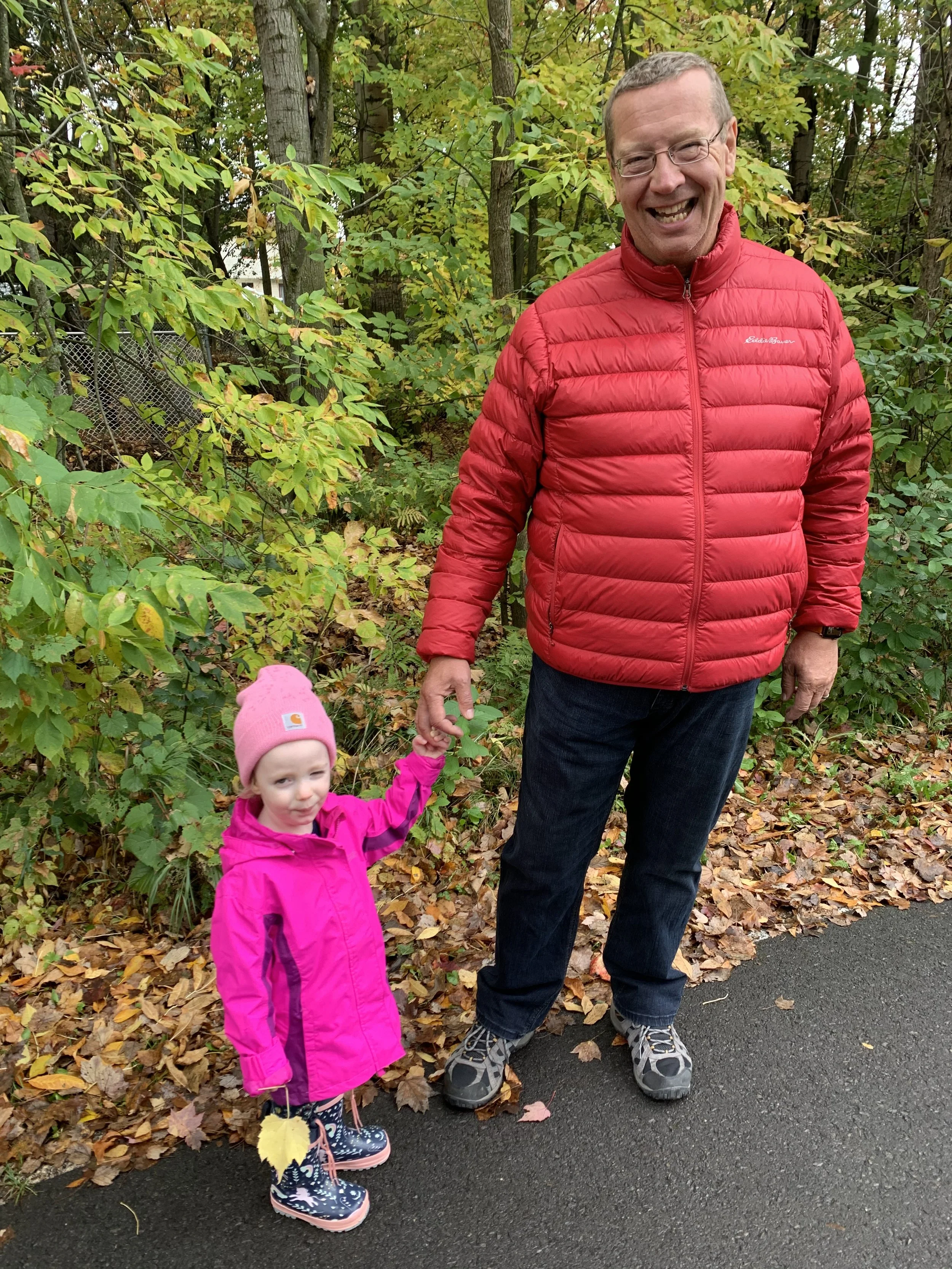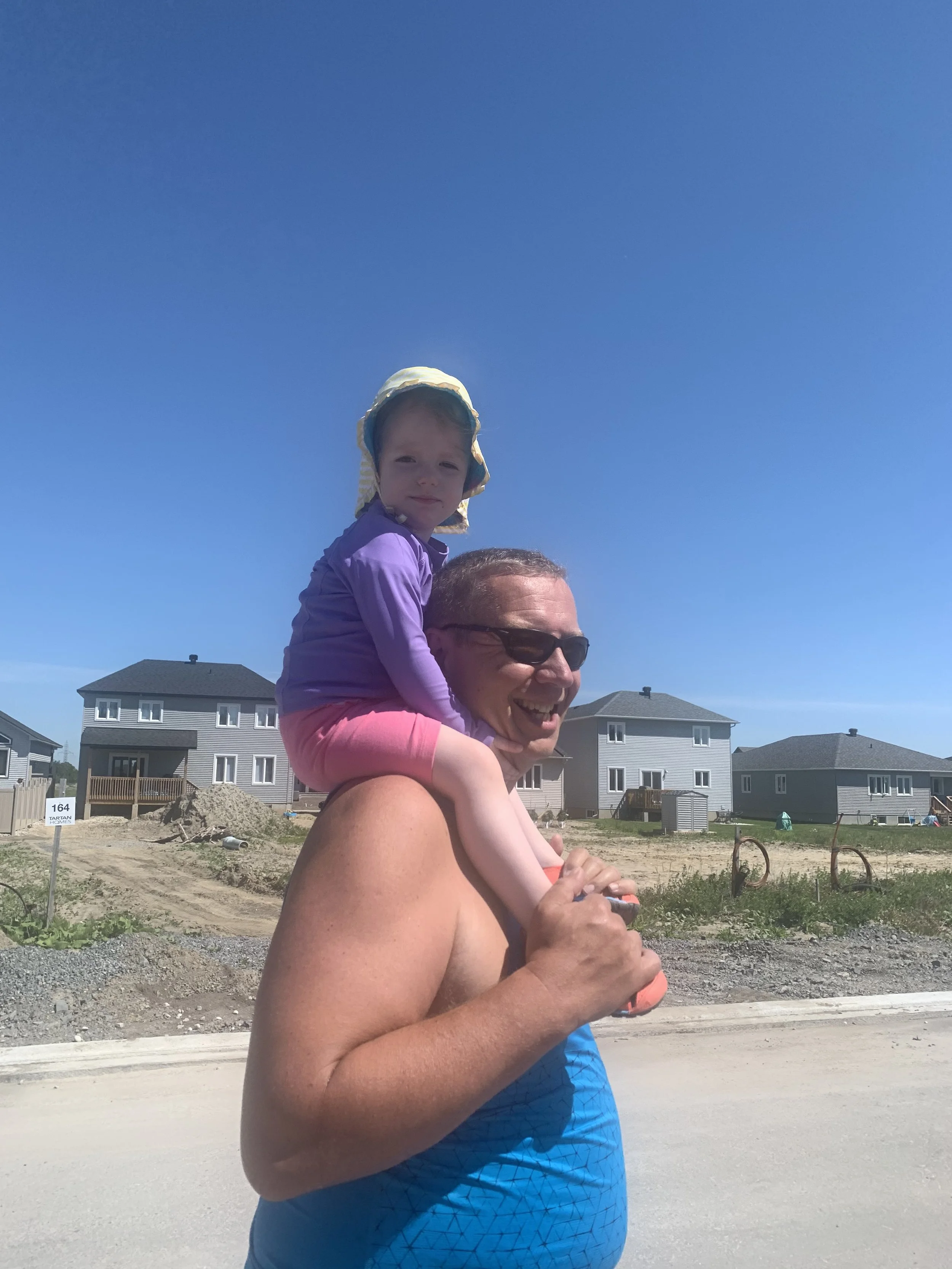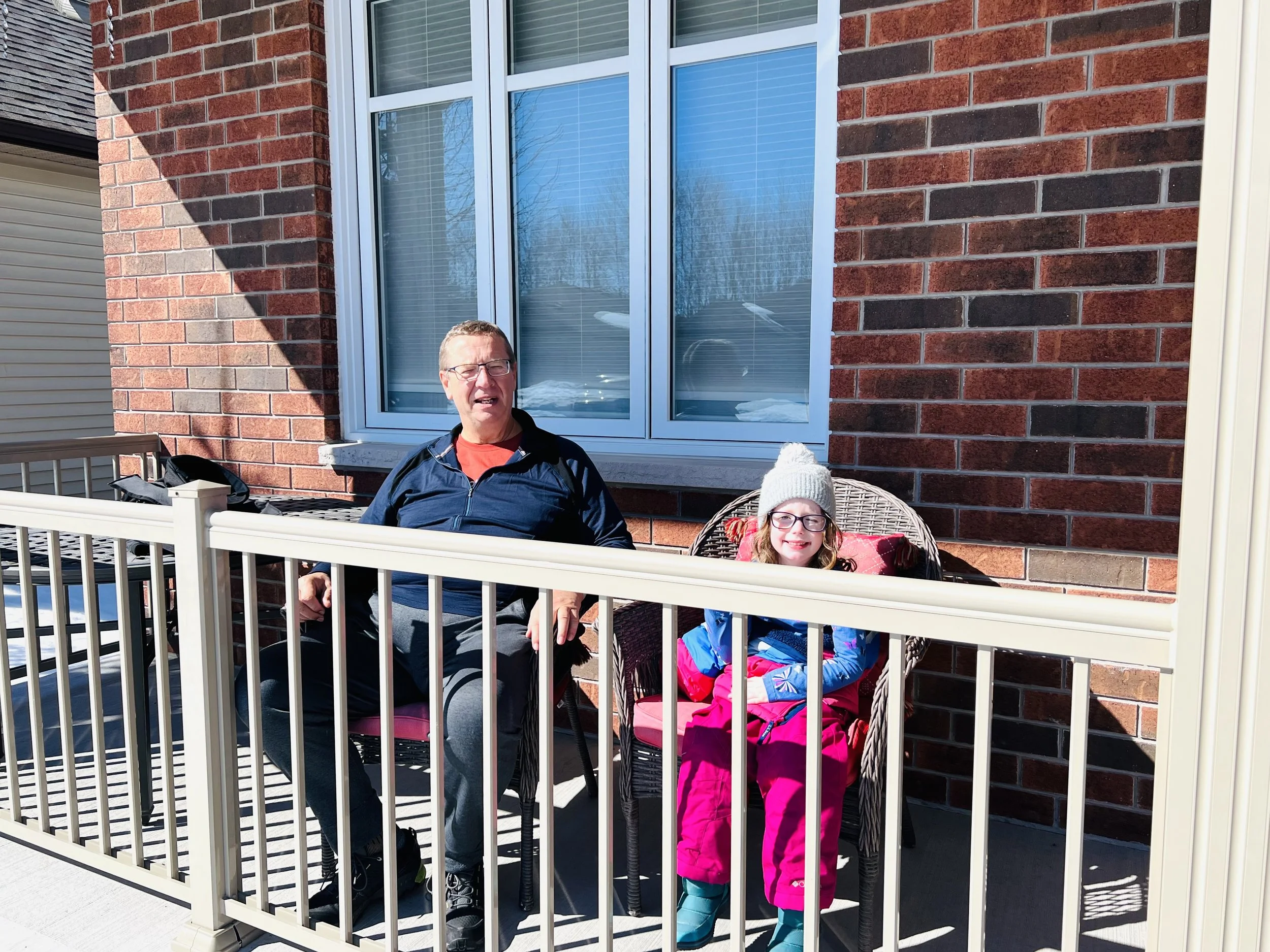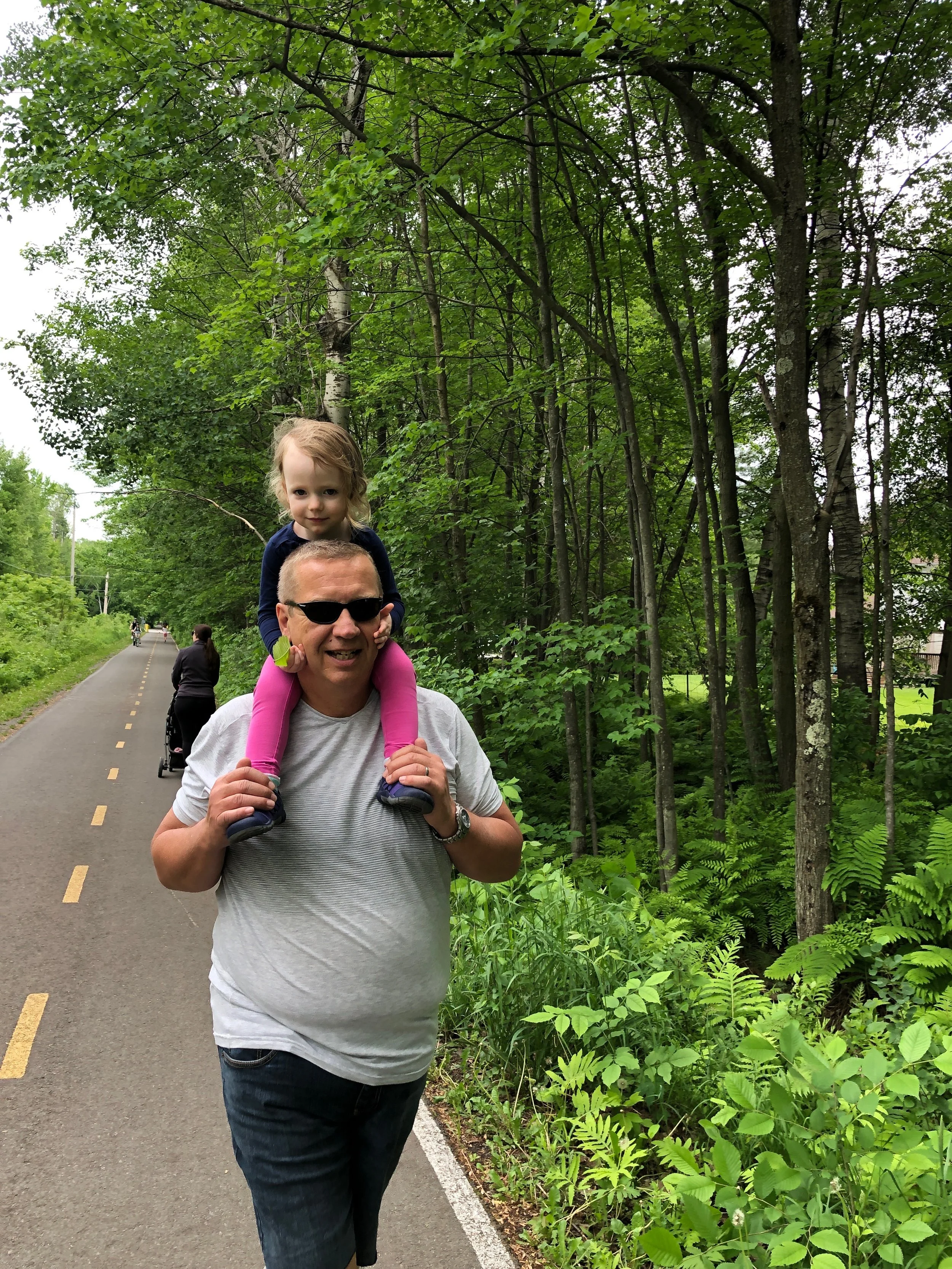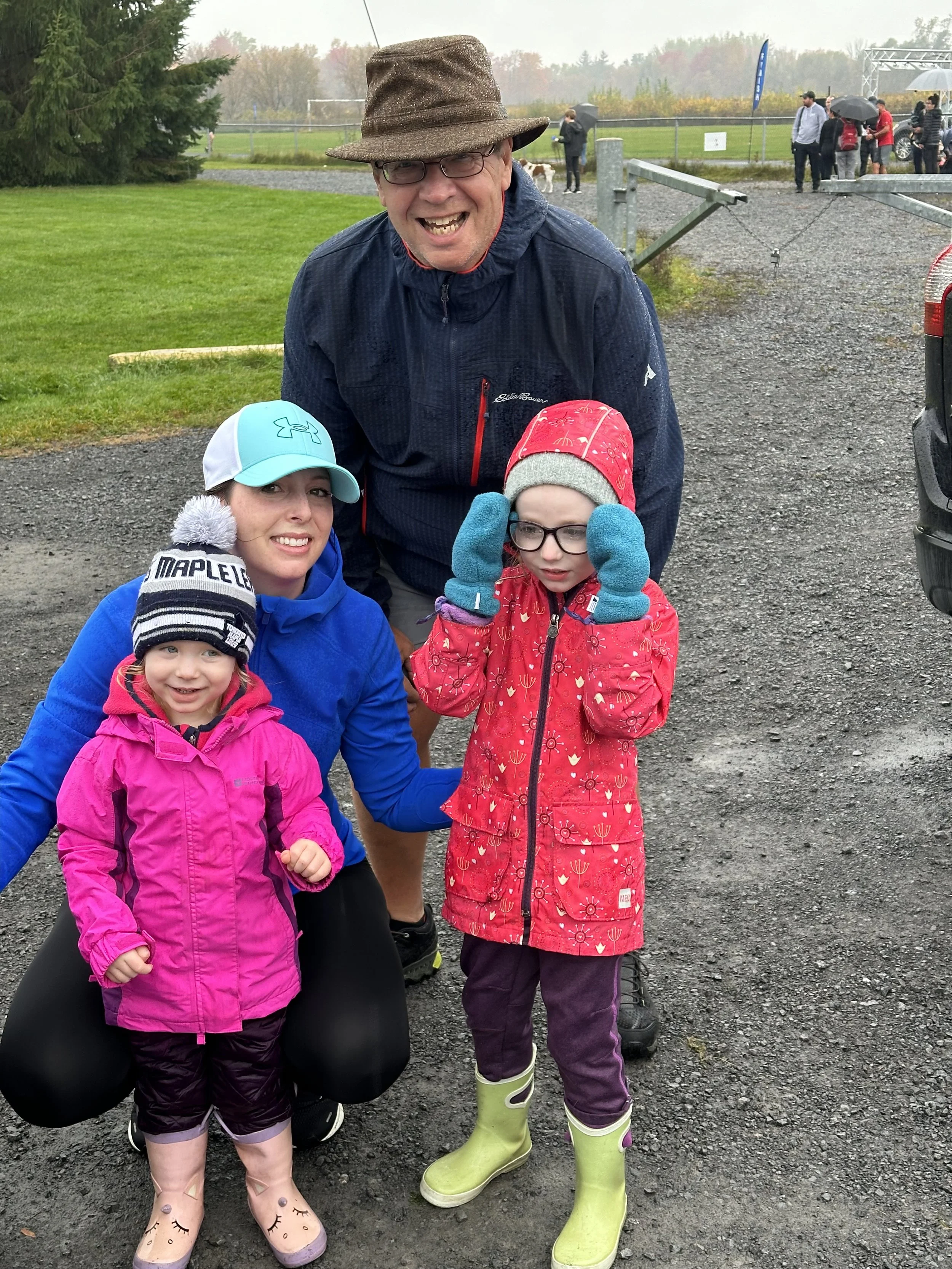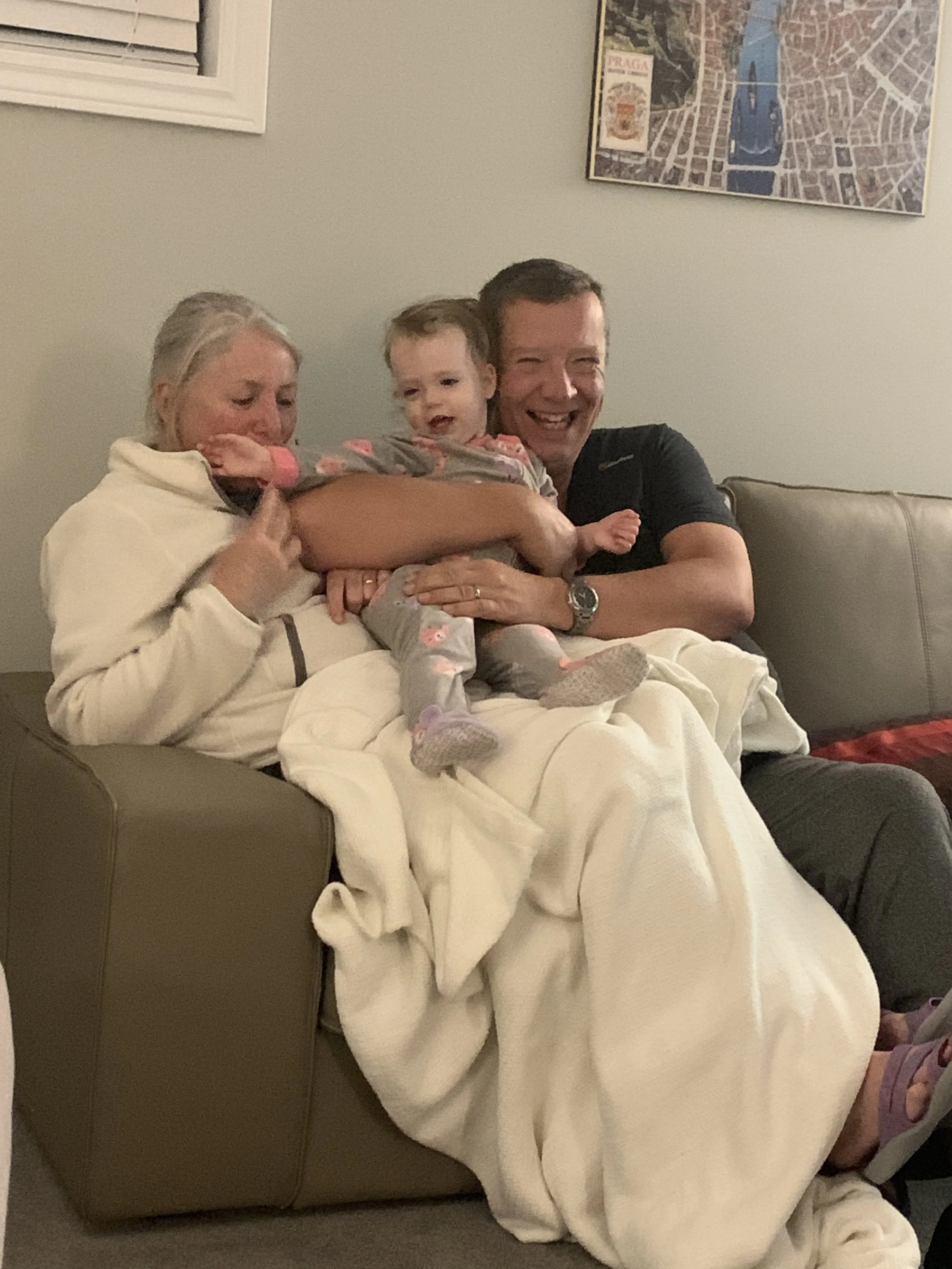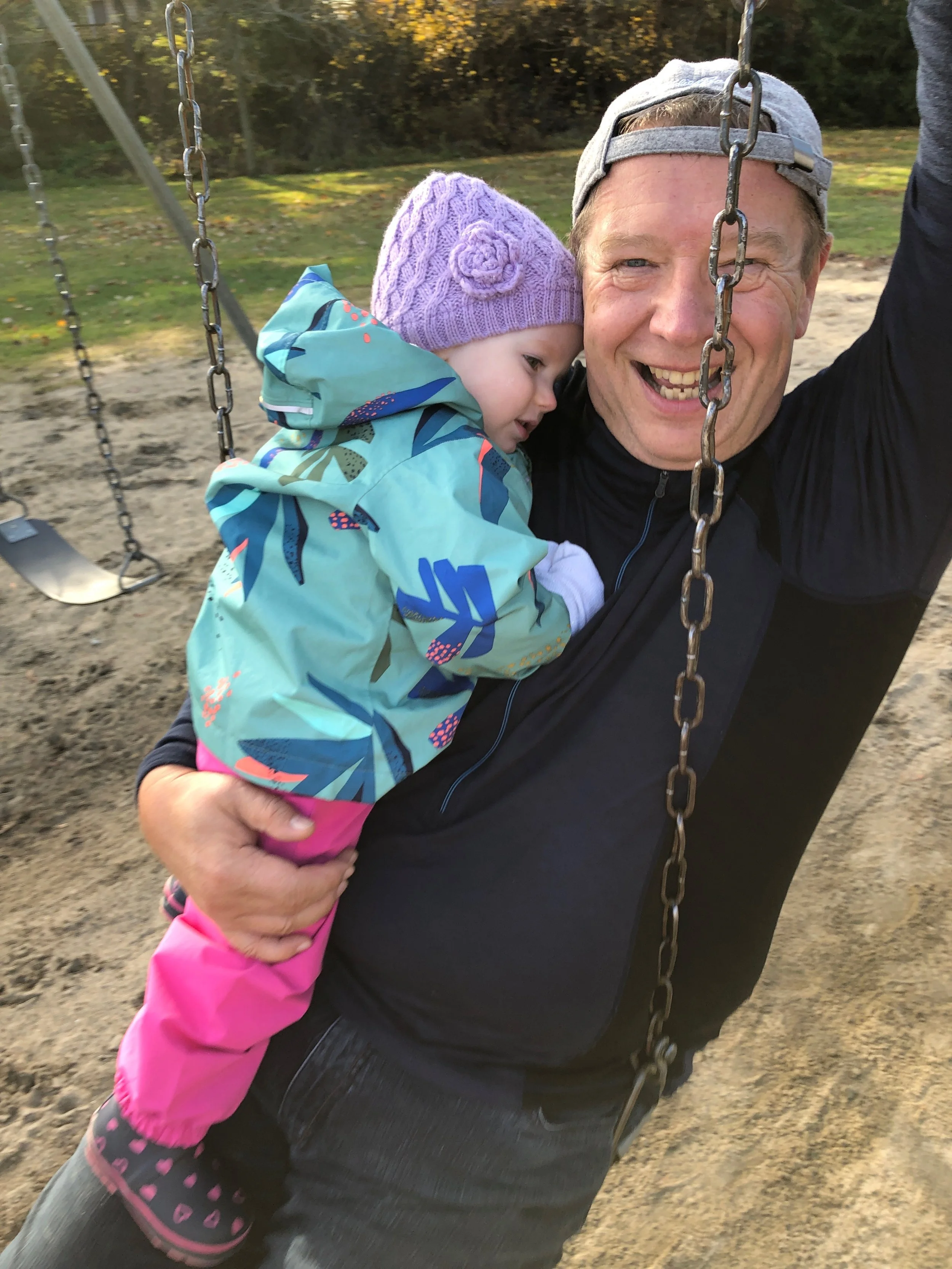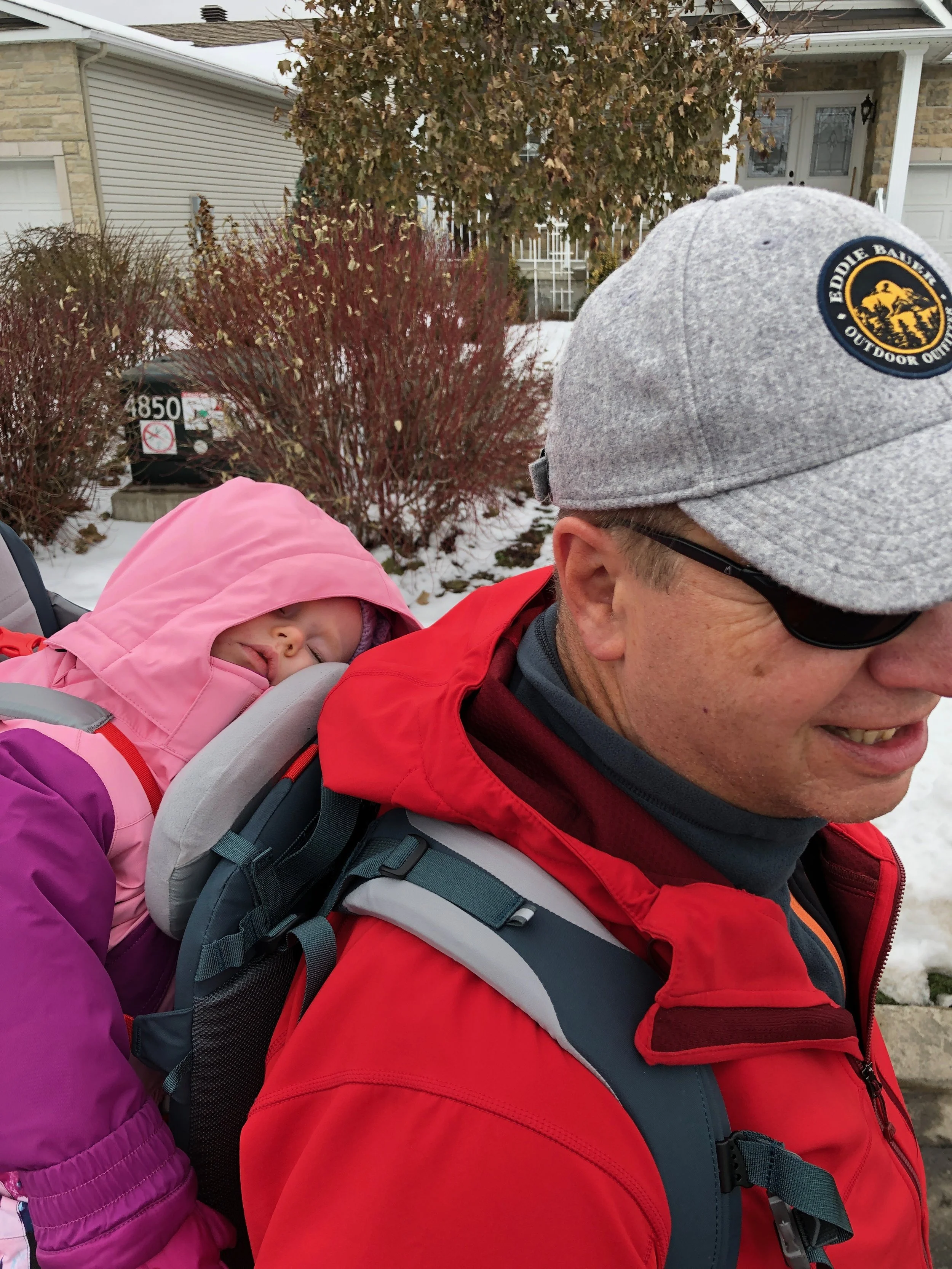6. Česká Venkovská Zahrada (A Czech Cottage Garden)
Saturday, August 9:
Dear Reader, I’ve taken over the blog—at least for the morning. I, aka Mom, aka Kathy, was out adventuring hours before Sleeping Beauty even stirred.
And, a note on yesterday’s entry: Our faithful reader Linda has pointed out that yesterday’s tale of pub crawling with Sáša had no proper ending—and she’s right. The night slid into the next day, minds no longer sharp, bodies no longer upright. Time was as fluid as pivo and slivovice. All I’ll say is this: the parties involved eventually made it to their beds.
What happens in Plzeň stays in Plzeň.
Sometime by 7am, Rod, miraculously bright-eyed, went out walking at dawn and returned with fresh strawberries, croissants, and coffee—our hero in his usual questionable t-shirt.
By 10:30am I tried to rouse Annie without success.
By 11 a.m., Rod and I set out for St. Bartholomew’s Church. We climbed all 299 steps of the tower, peering down at vintage Škoda cars gathering for a rally in the square. We watched them from above, then again from a café, where I had a cappuccino and Rod—still running on last night’s supply—had a beer.
We wandered through Plzeň, browsed the “SnowBitch” skater store with its wall of Vans, and looped around the old town in search of Czech garlic soup. Lunch was pizza, prosecco, and, finally, Česnečka—garlic, potatoes, crunchy rye croutons—the famed hangover cure. Effective? I’ll let Rod decide.
Back to Annie…
I was awoken on Saturday morning at 10:30am by mom, who clearly has no regard for the sanctity of my vacation sleep schedule. She said it was time to get up. I told her to go ahead and enjoy the day without me. She didn’t find that funny.
Hours later, mom and Rod returned from their adventures and we debriefed on the day so far.
Sáša and Ivanka had invited us to their family cottage for the afternoon and dinner. It’s northeast of Pilsen, in the little village of Dýšina—a lovely Czech weekend spot, the kind of place where families escape the city heat, light the fire, and eat and drink amongst the garden.
Before we left for Dýšina, I called a family meeting—not about logistics, but about emotions.
August 9th isn’t just another day on the calendar. Last year, it was the final day Zed was alive. The day before, the stroke had taken him out so suddenly that by the time it was the 9th, there was nothing left to do but sit by his bed and wait. Dark room. Quiet except for distant hospital sounds. The day moved on, and his body was shutting down.
I told Mom and Rod that I didn’t want to just barrel into the day without acknowledging this. I could feel that knot rising in my throat as I spoke, and before I knew it, I was crying. Mom started talking to Rod about those last hours—how we sat there, how odd and hollow it felt. Rod just listened, the way he always does, warm and steady, giving you the space to say it without rushing you along. He’s a great listener.
It wasn’t a long meeting, but it was a necessary one. A check-in before we went to see Zed’s family—people we love, whose company would be both joyful and hard in equal measure. It would certainly stir things mom had been carrying quietly all year.
Family chat complete—it was now time for our Czech cottage experience: a visit to Sáša’s garden.
The drive out of Pilsen was late-August gold. The sun sat low enough to drape everything in that warm, syrupy light that makes even a leaning fence post look romantic. Small villages appeared like postcards—clusters of red-roofed houses, tidy gardens bursting with sunflowers and tomatoes, laundry flapping lazily in the breeze. The air had that faint dusty sweetness you only get when the fields are high and the summer’s just starting to tip toward its end. We passed apple trees heavy with fruit that still needed more time, families riding bikes, and the occasional elder sitting on a bench watching the whole world go by.
It felt like the pace of life had shifted down a gear. And by the time we pulled up to the cottage, and Sáša came out to meet us, I felt a rush of something I am struggling to put into words.
Sáša gave us a slow, proud tour of the cottage garden—his kingdom of green and gold. European plums and apples hung heavy on the branches, and I immediately started plotting how to smuggle their seeds back to Canada. Not just to grow fruit, but to plant a living piece of Zed’s family here in my own backyard.
Ivanka, Vladimír, and Markéta were there to host us—charcuterie boards loaded with meats and cheeses, beer flowing, wine glasses never empty. Dinner was already on the horizon, but no one seemed in any rush to get there.
Sáša moved from row to row, pointing out the marigolds he plants alongside vegetables to keep the critters away. Zucchini, peppers, cucumbers, tomatoes, herbs, even jalapeños—it was a garden with both beauty and spice.
When I asked how he learned to do all this, he told me about his grandmother. How she gardened here long before him, teaching him to pull strings taut so pumpkins would grow up instead of sideways, to know exactly when to cut tomato leaves, and when to snip flowers so they’d grow back stronger. How to germinate seeds, when to tuck them in the greenhouse, when to compost, and when to turn the soil.
It wasn’t just a garden—it was family history, still alive somewhere in between plums, mint, and cherry trees.
I ended up talking to Vladimír, Sáša’s father, about the history of the cottage. He told me how he and his own father built it in the 1960s, back when they were living under Soviet rule.
At the time, private property wasn’t an option—everyone was assigned an apartment. But the Soviets did allow people to have gardens, to grow their own food. So Vladimír and his father claimed a little patch just outside of town and built this place. Not a “real” house, nothing that could be mistaken for ownership—no electricity, no running water. Just a simple shack, enough to store tools and shelter from the rain, with the main focus on the land itself.
It was never about the building. It was about the soil, the rows of vegetables, the orchard. A small sanctuary they could call their own without technically “owning” it.
Now, that same patch of earth belongs to Sáša—in the way that matters. Like his parents and grandparents before him, he tends the garden, coaxing food from the ground season after season. The little shack still stands, but it’s the life in the garden that’s the real inheritance.
Ivanka is one of those people who radiates warmth the second you step into her orbit. She loves children—adores them—but she only ever had one, her son, Sáša. And now, at 50, Sáša has never had children of his own. That’s why, she told me, it meant so much to watch Zed as a grandpa, a Papa, to my kids.
She used to send birthday messages to Emma, Evelyn, and Claire every year, calling them “three beautiful princesses.” She didn’t have to, but she did—because love like hers can’t help but spill over borders, languages, and bloodlines.
Sitting there today with Ivanka, in the soft glow of her garden, I felt that love fully. It was awkward at times—my Czech is a mess, her English is almost nonexistent—so we passed phones back and forth, typing into translation apps and laughing at the odd phrases that came out. But none of that really mattered. What mattered was the connection. The way she reached for my hand when she said, “Our home is your home.” The way she meant it. We even promised that one day we’d try to bring the girls to meet her in person.
Grandparenting has its own joy—watching a new generation grow, pouring into them all the best parts of yourself. Zed knew that joy. But here’s where the truth tilts bittersweet: Zed was estranged from his biological daughter, Clara, for decades. At some point in our relationship, he told me he’d adopted me in his heart as his daughter. And I’ve done the same with Emma, my stepdaughter.
The paper trail doesn’t matter. What matters is that my kids were Zed’s grandchildren, no less than if he’d been bound to them by DNA. He was there for everything—when I was pregnant, when I gave birth (nearly wandering straight into the delivery room when Evelyn arrived), and when Evelyn was frighteningly ill as a baby.
Back then, a Russian healer—someone I barely knew—told me Evelyn was an angel sent to earth “to resolve something.” I’ve carried that strange, heavy phrase for eight years, never knowing what to make of it.
But maybe today, sitting with Ivanka and seeing that same deep, unconditional love in her eyes, I finally understood. Maybe Evelyn’s gift… to resolve something…
To be a granddaughter for Zed—to give him a second chance at fatherhood through her laughter, her songs, her little Czech nursery rhymes.
To let him relive the joy he’d once had with his daughter Clara, when she was little, before life got complicated.
For seven years, Papa and Evelyn had something rare. Evelyn loved Papa from the day she met him when she was less than a hour old. He was her special Papa.
And over the years, Evelyn learned to sing “patsy patsy” with him. He taught her Czech words. He used to make her a baby cappuccino. He walked her to school every morning.
And most importantly: he firmly held Evelyn’s hand and mine through our darkest days.
My mom used to laugh that Papa was the fun one and she was the serious one. Maybe that’s what Evelyn gave him: pure fun, pure love, pure family.
And maybe, in her own quiet way, she gave him peace.
